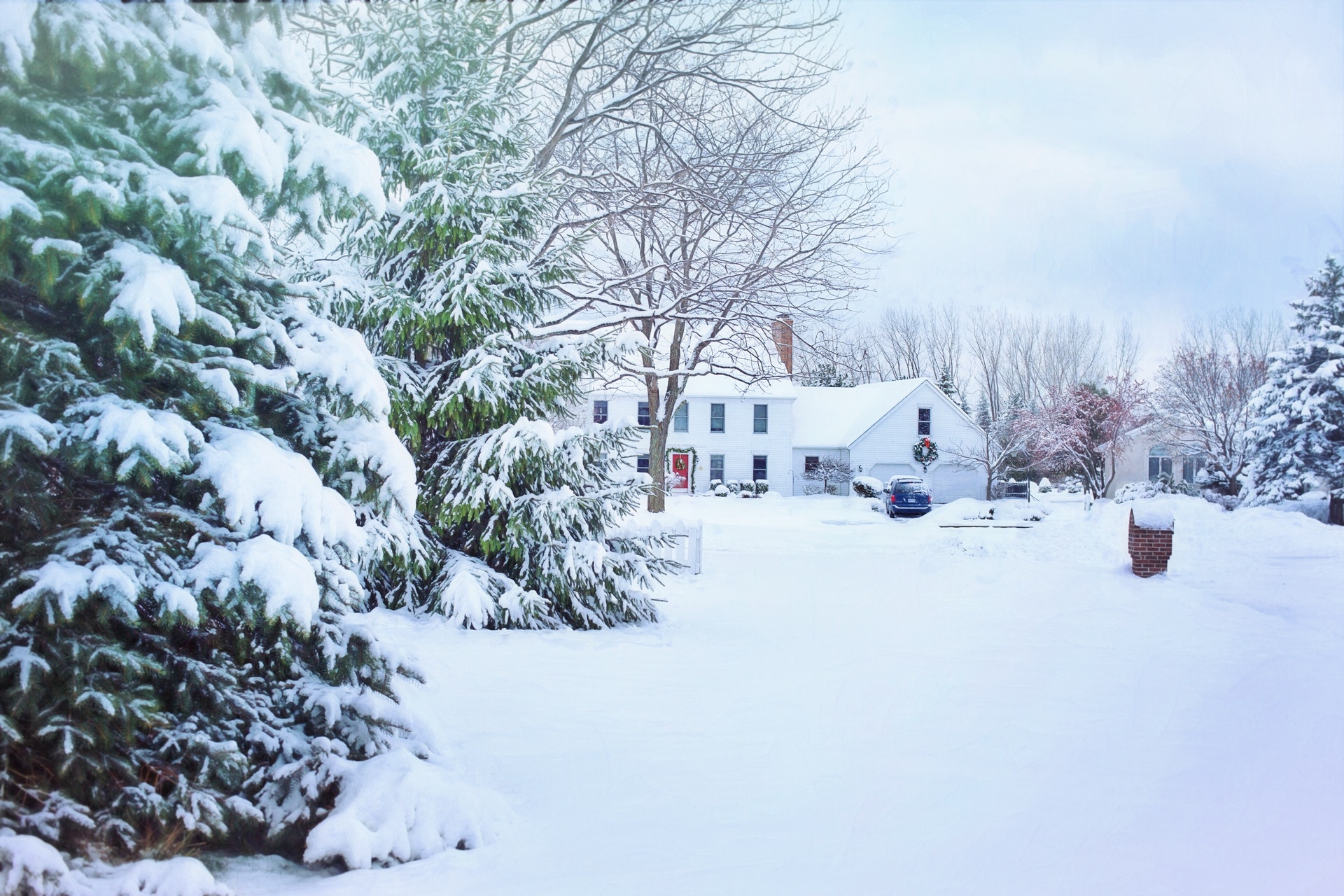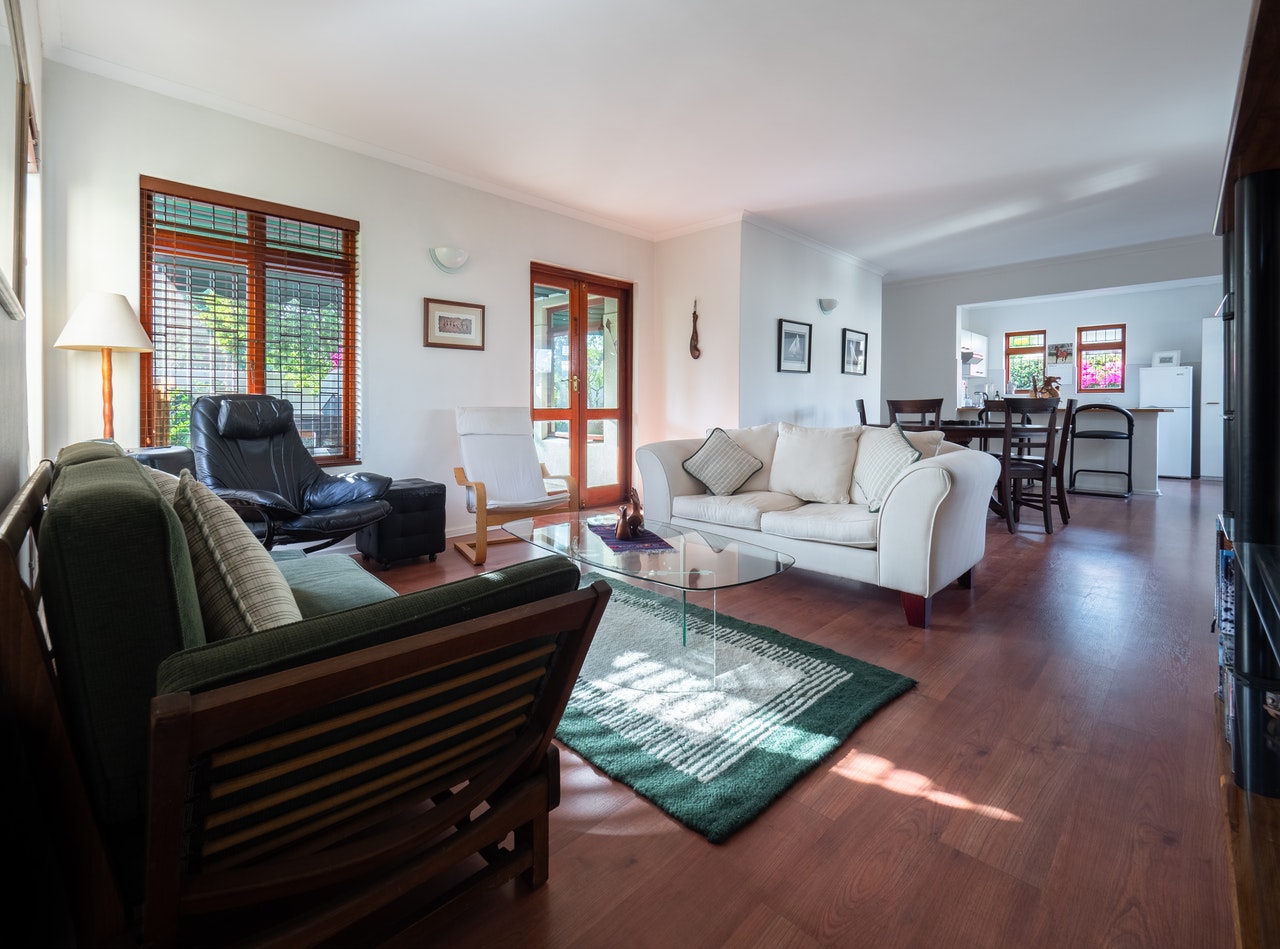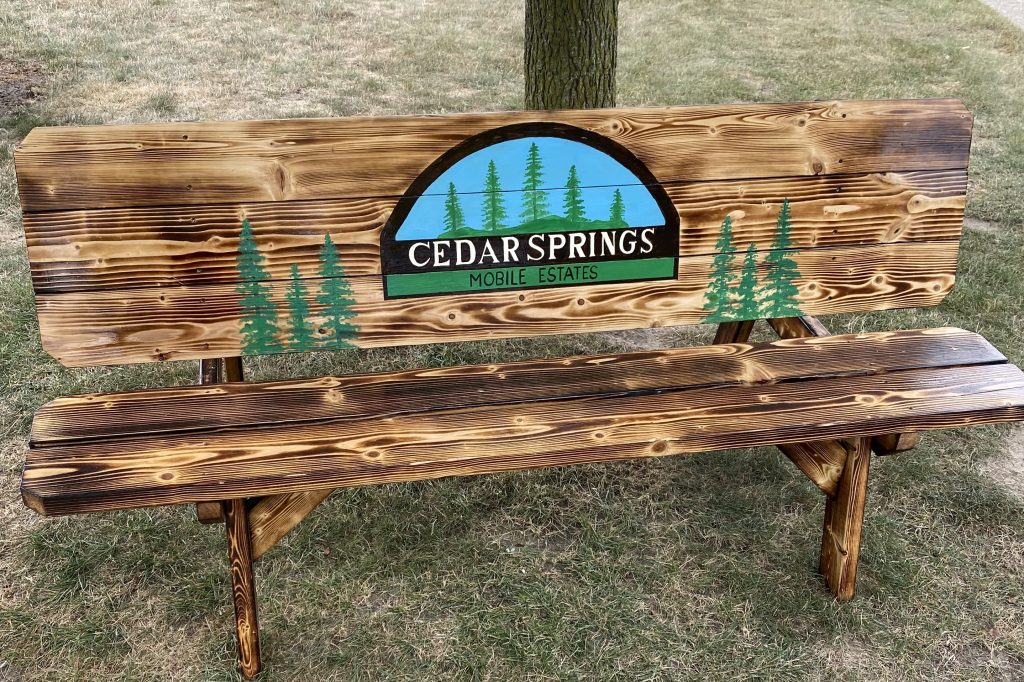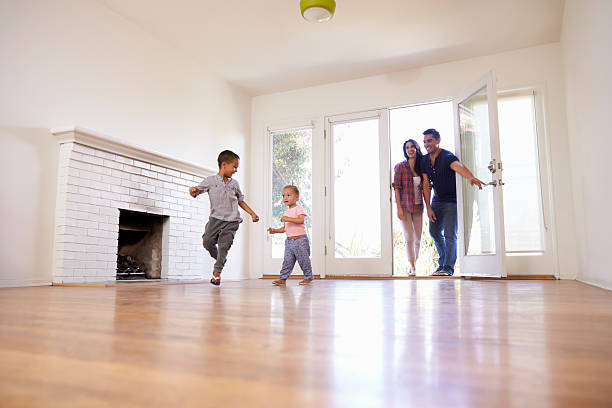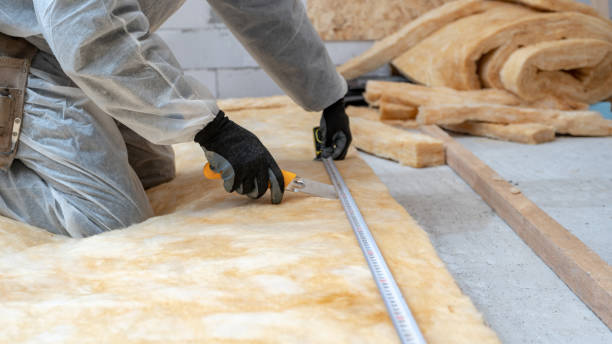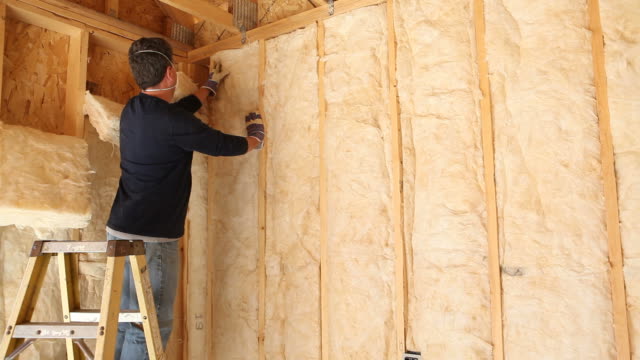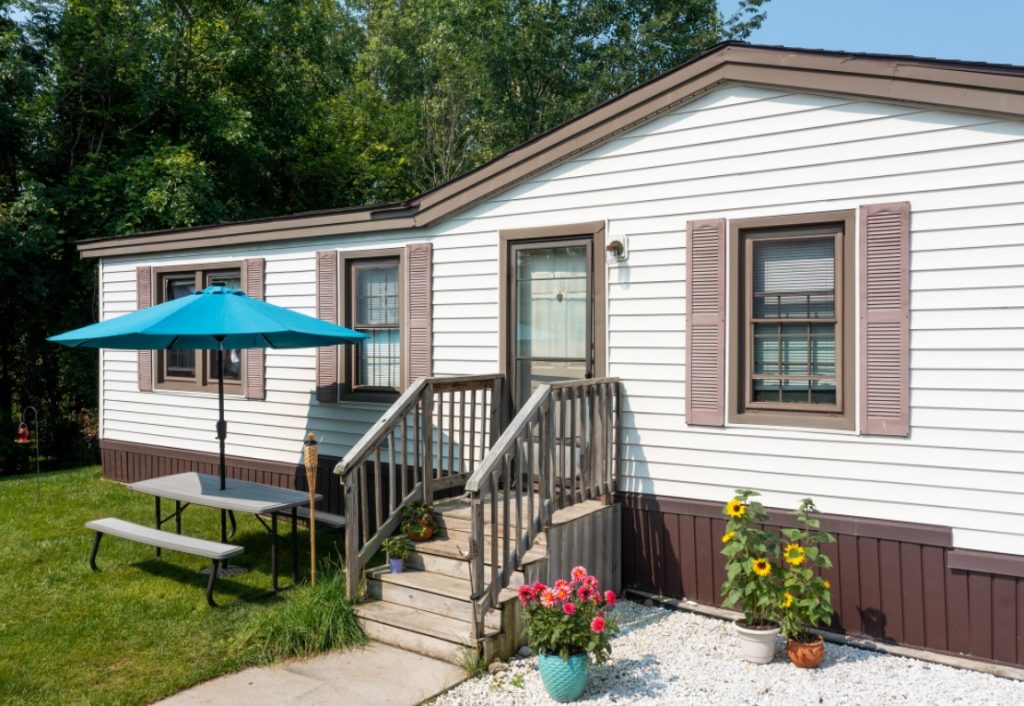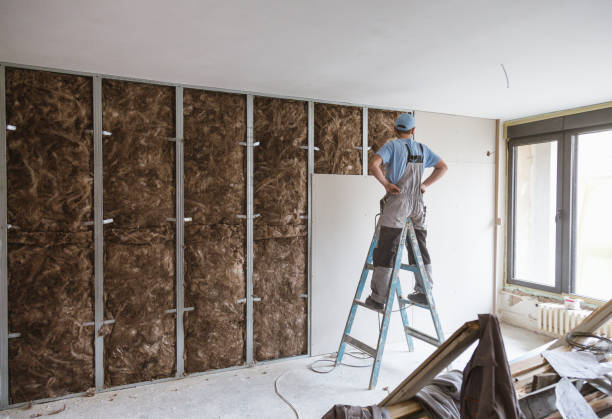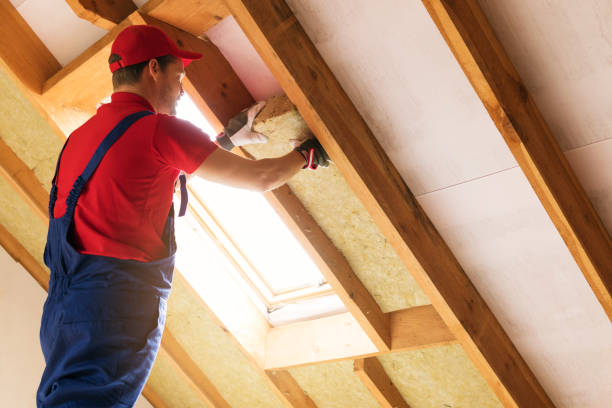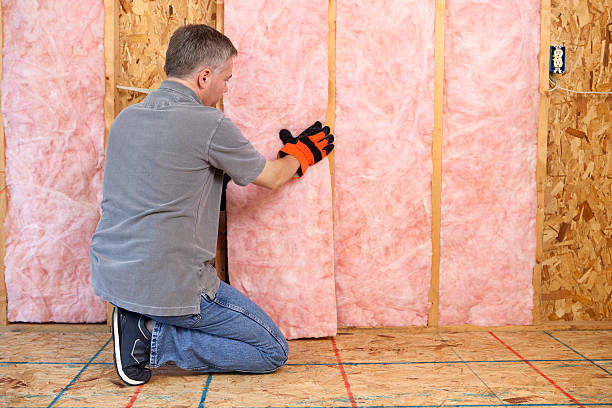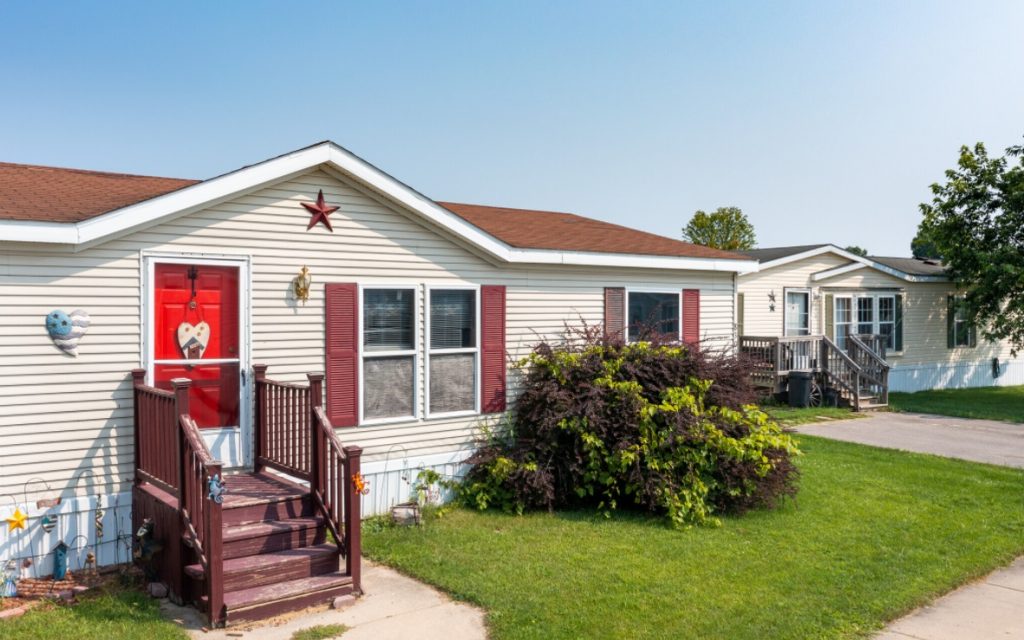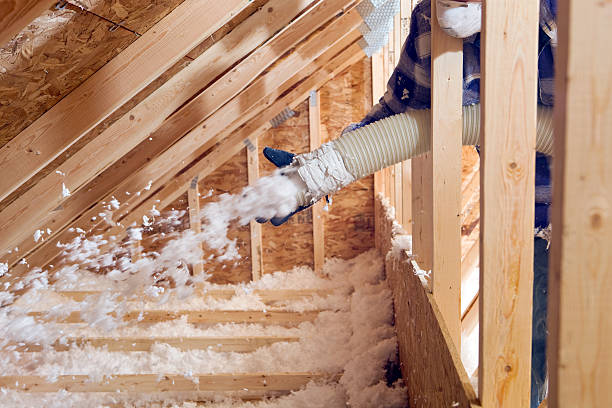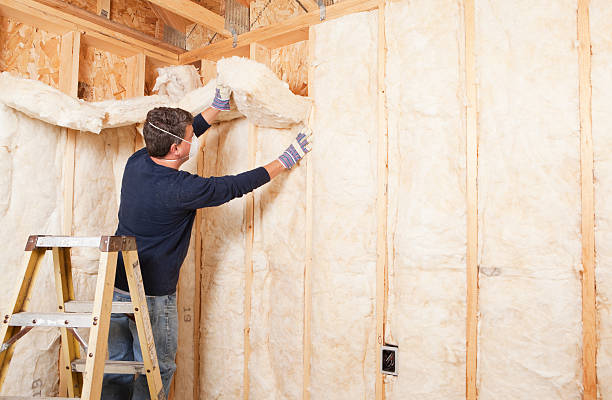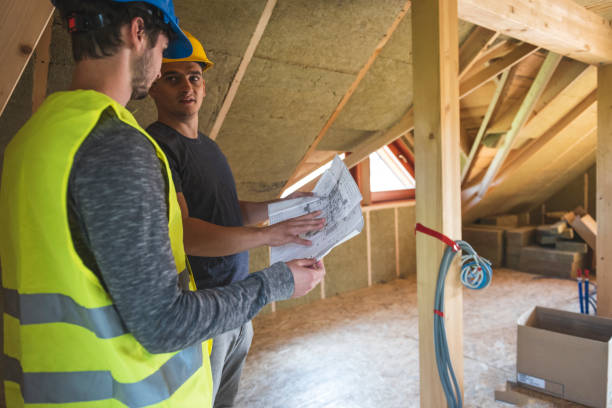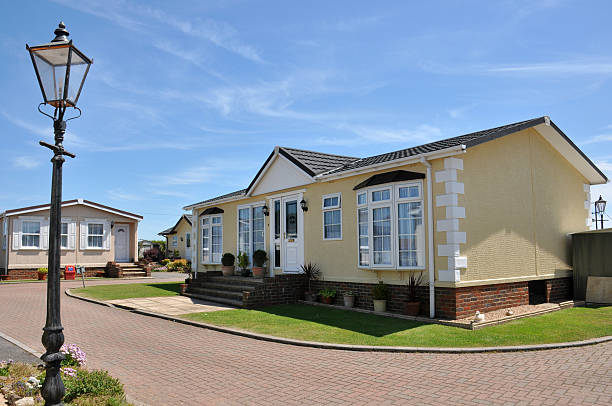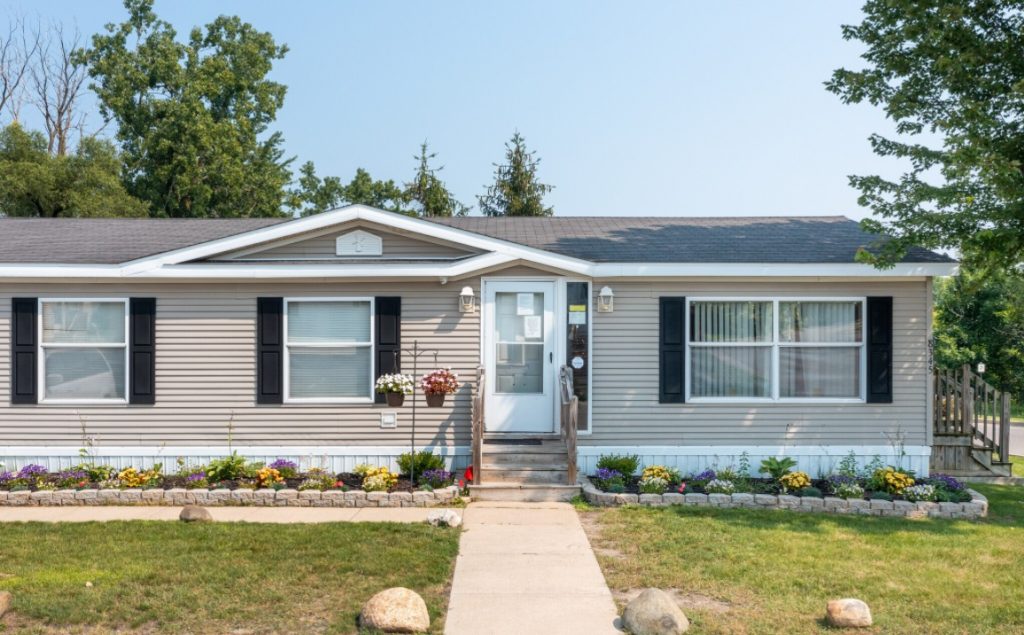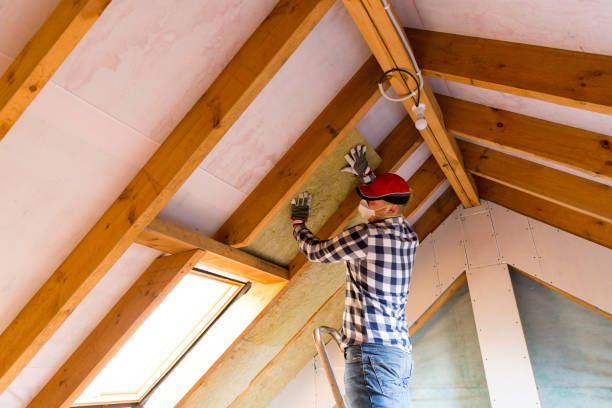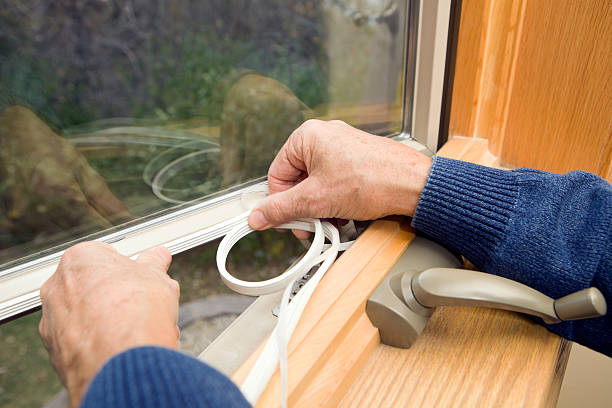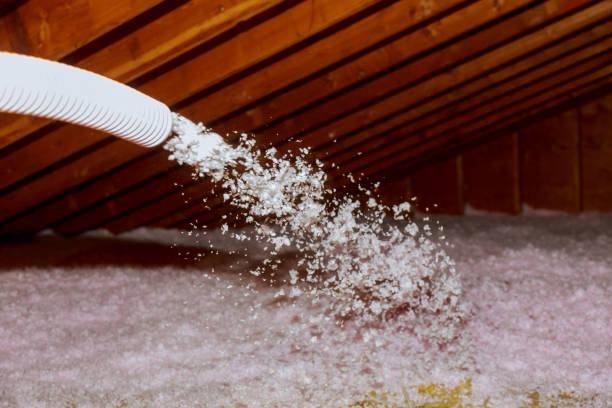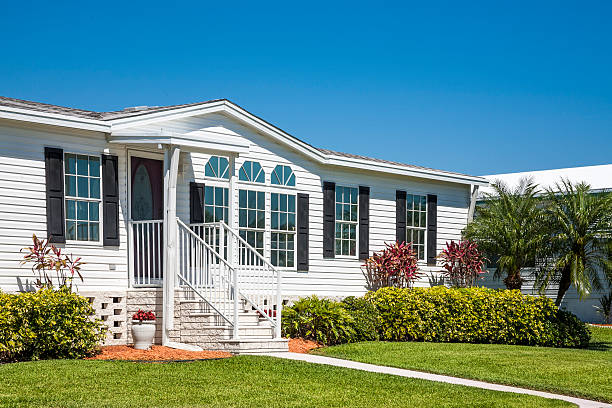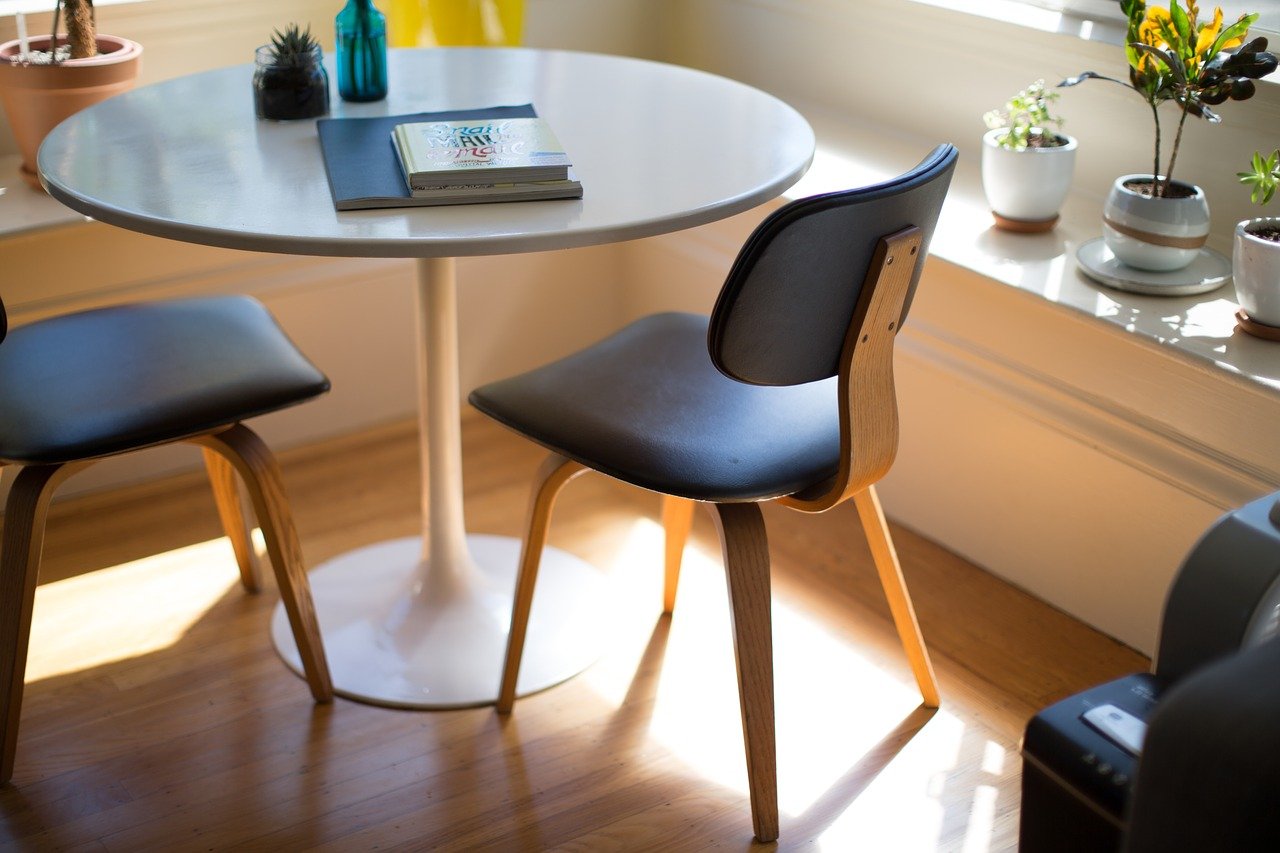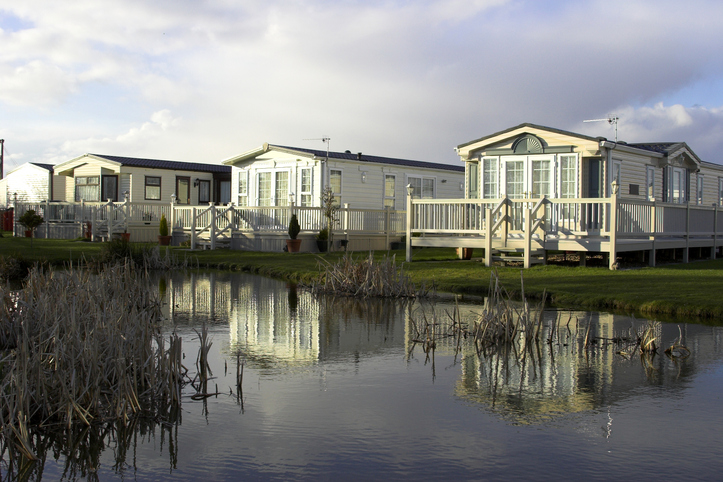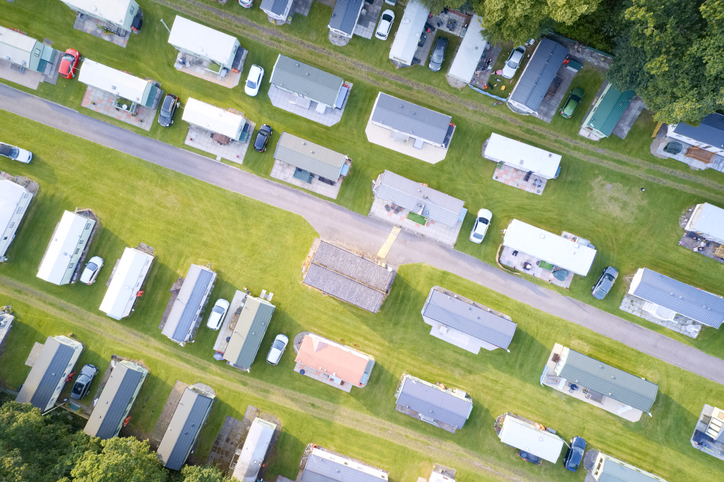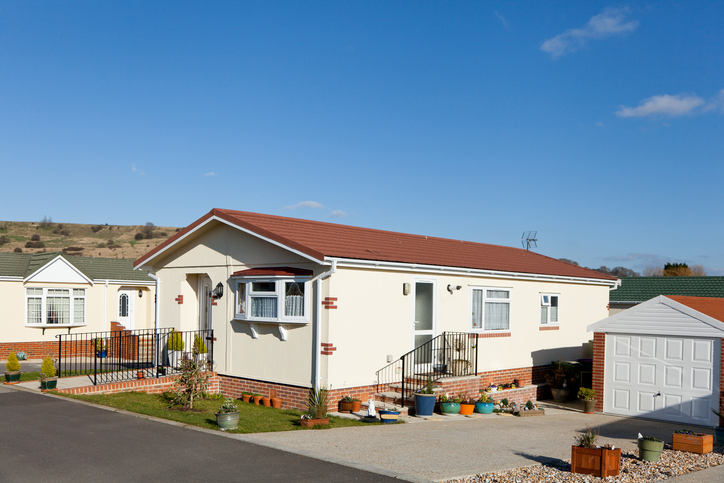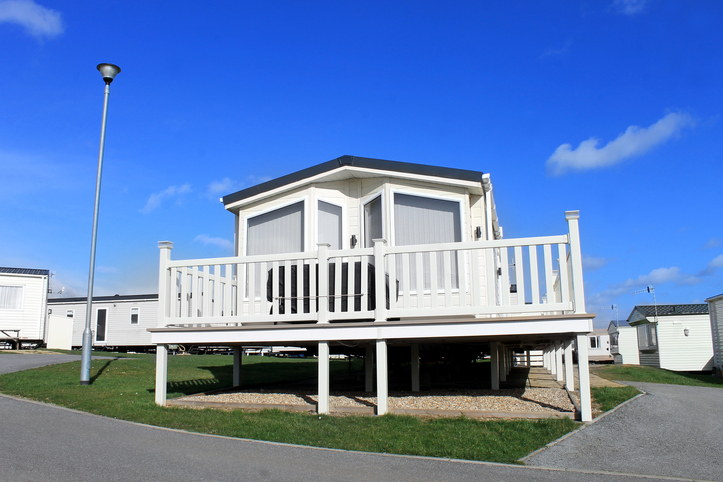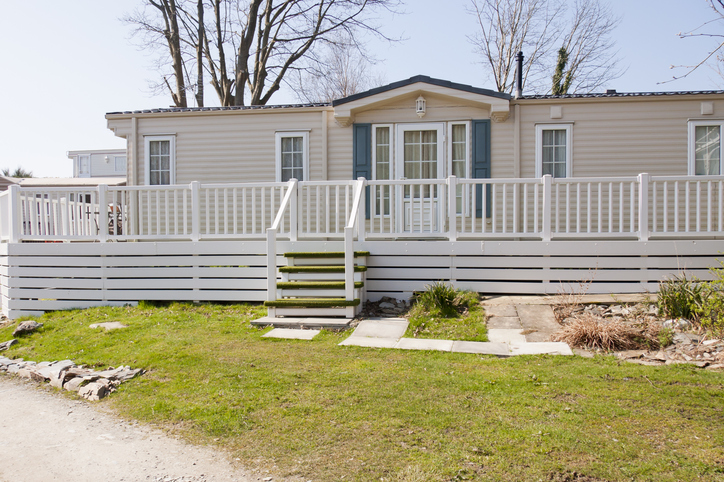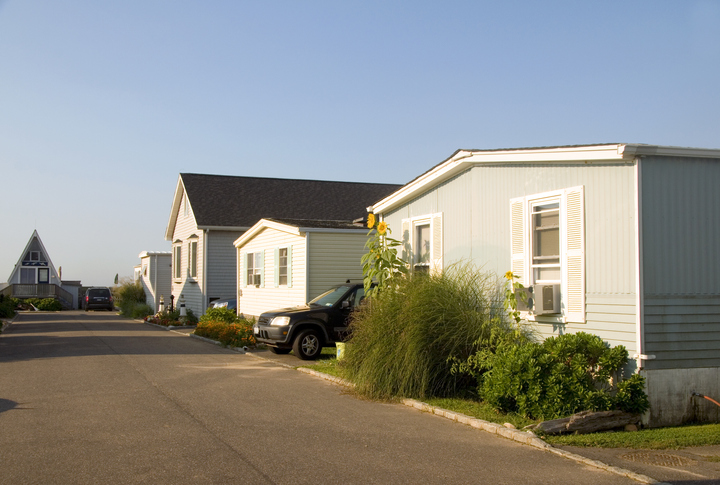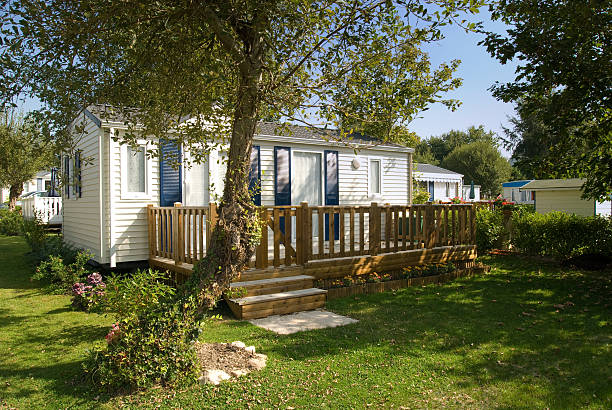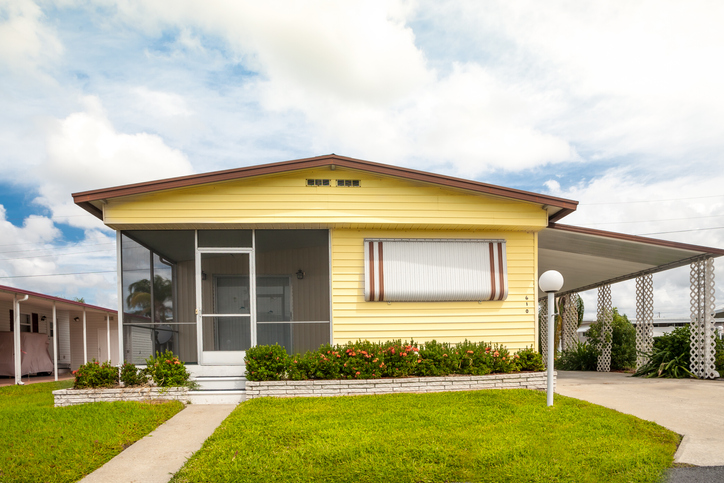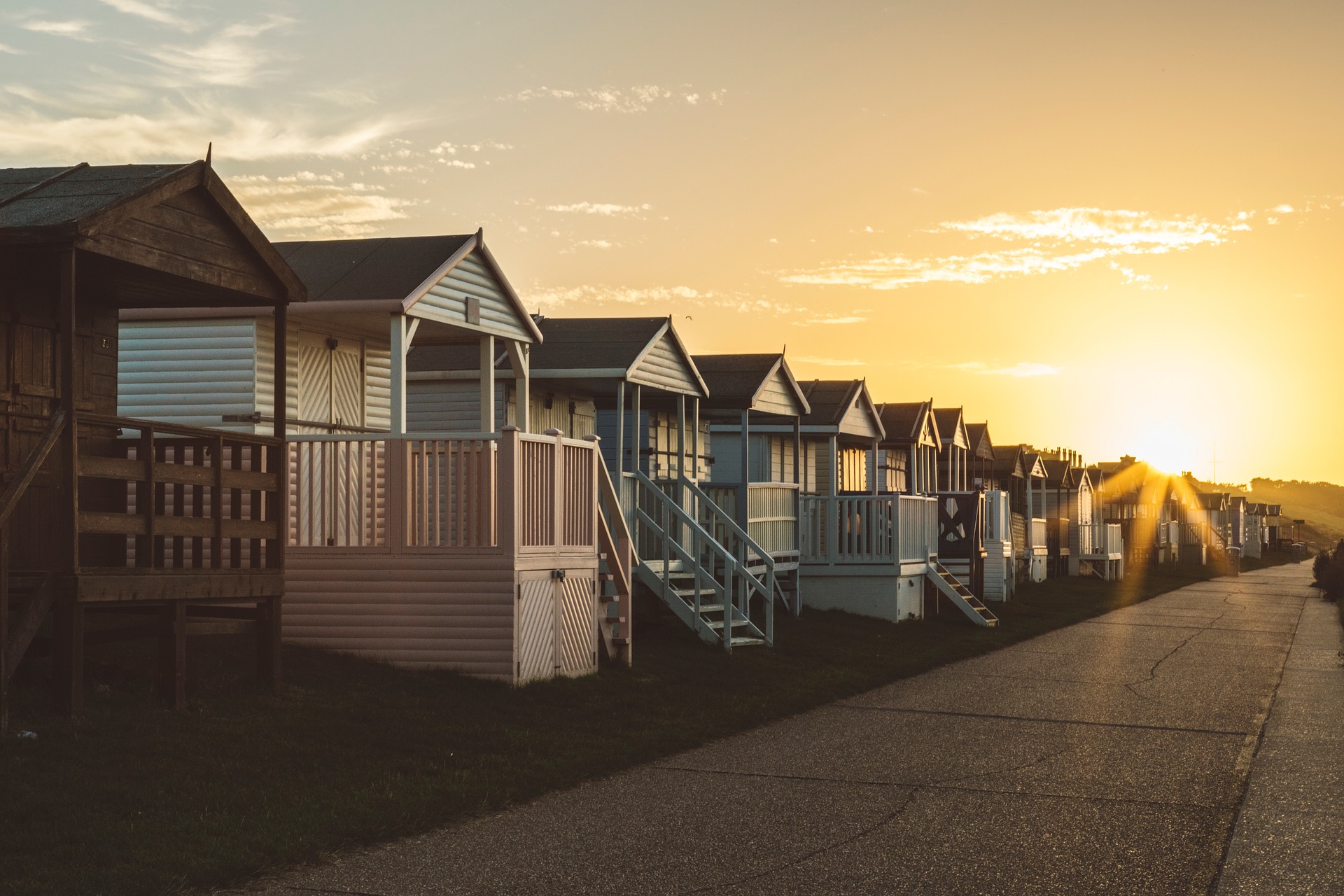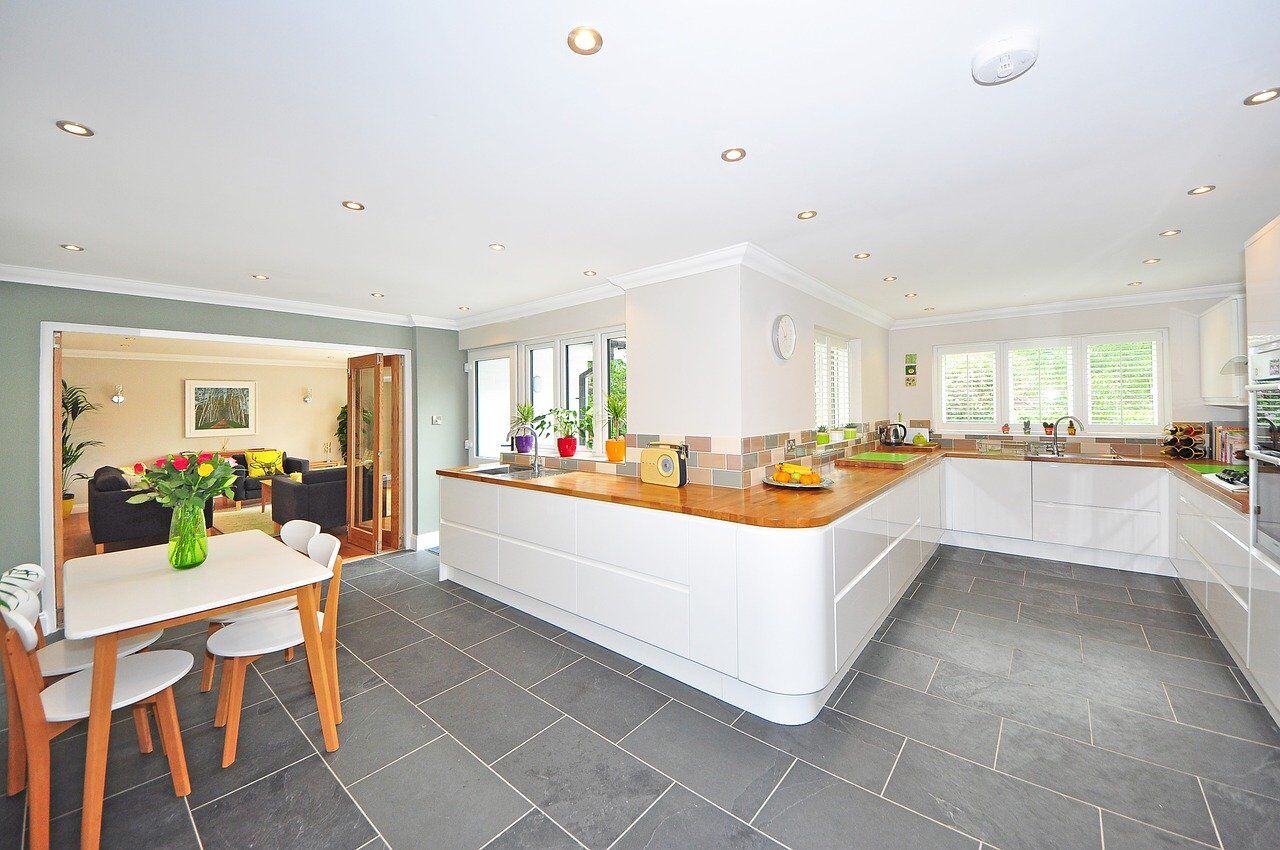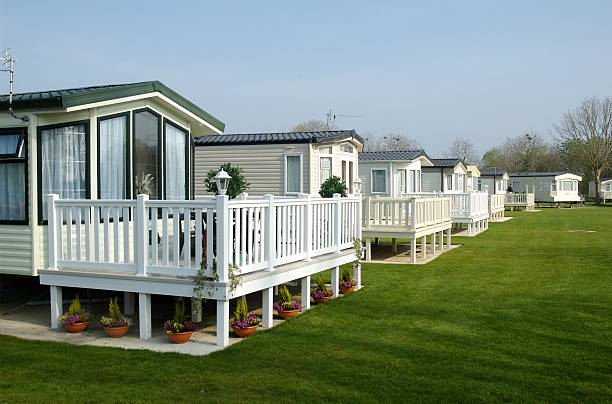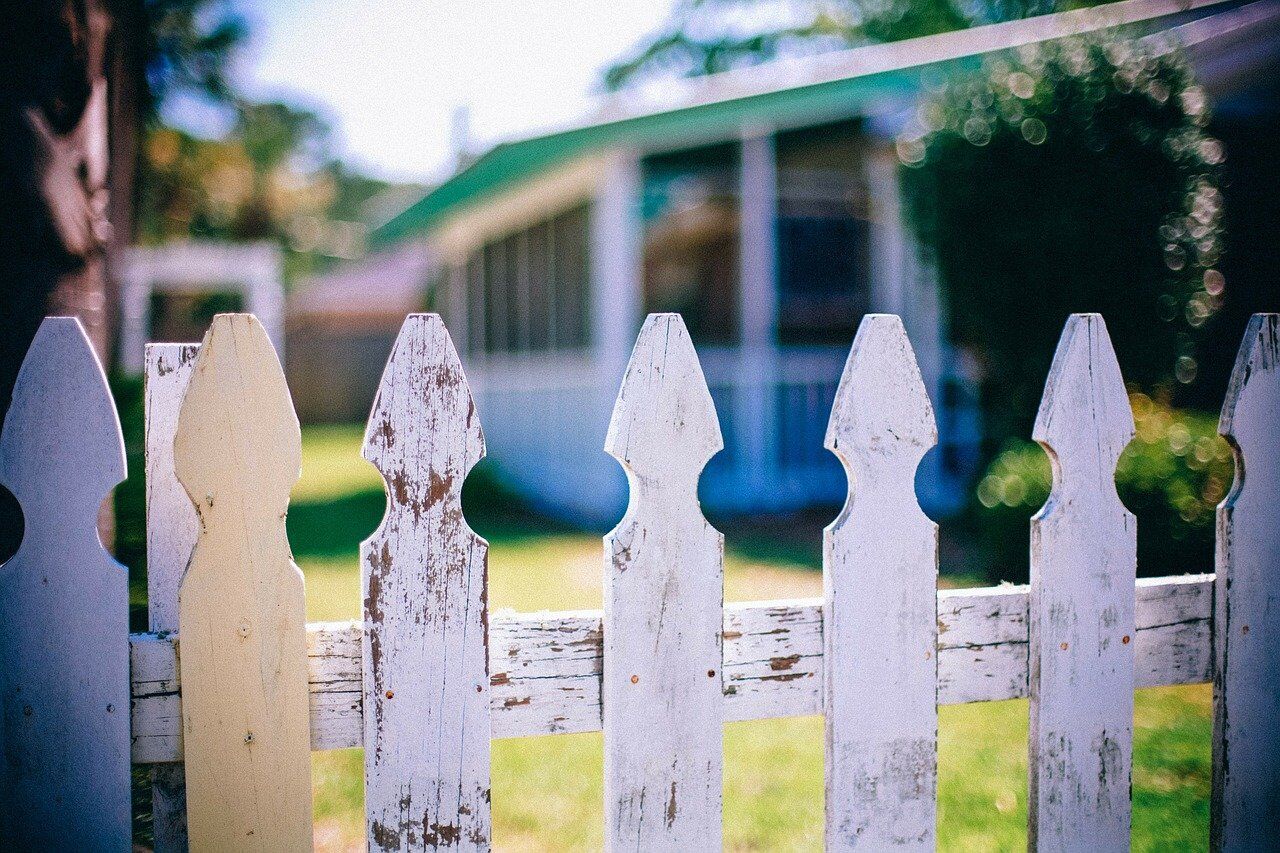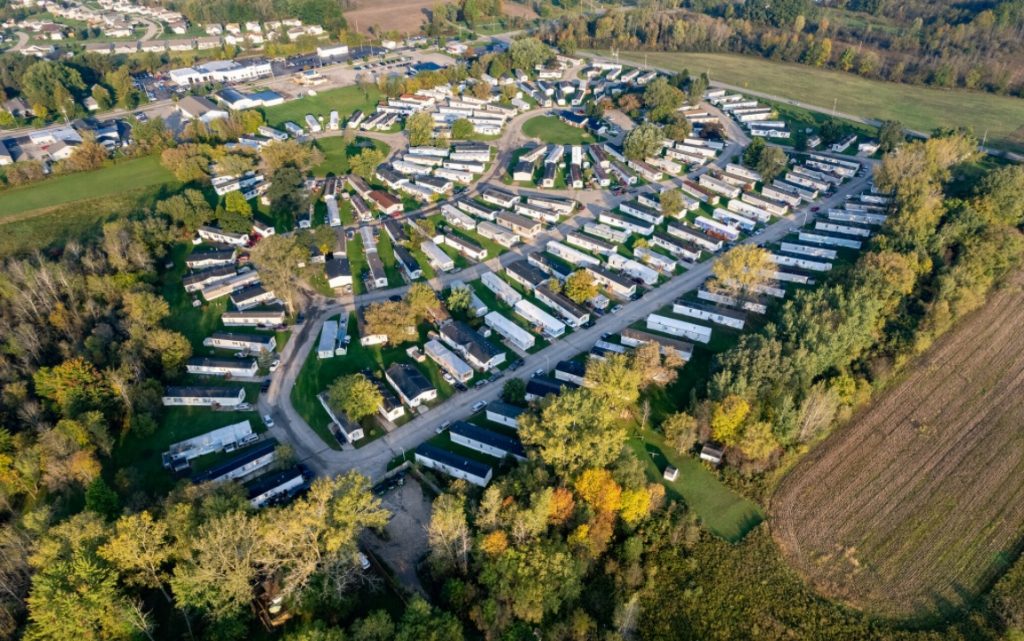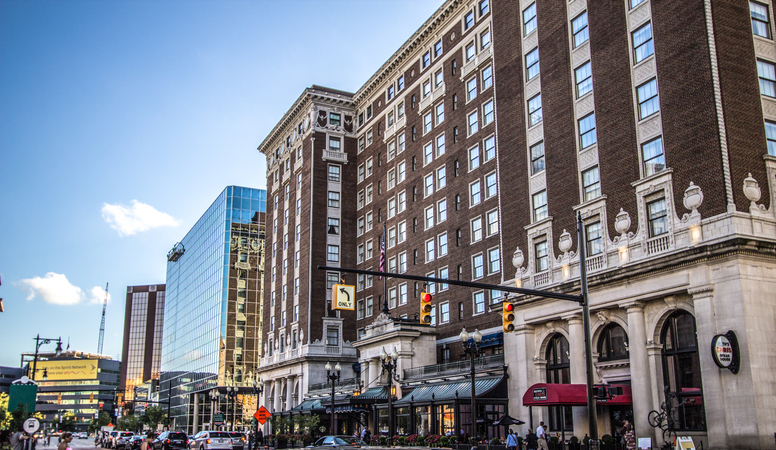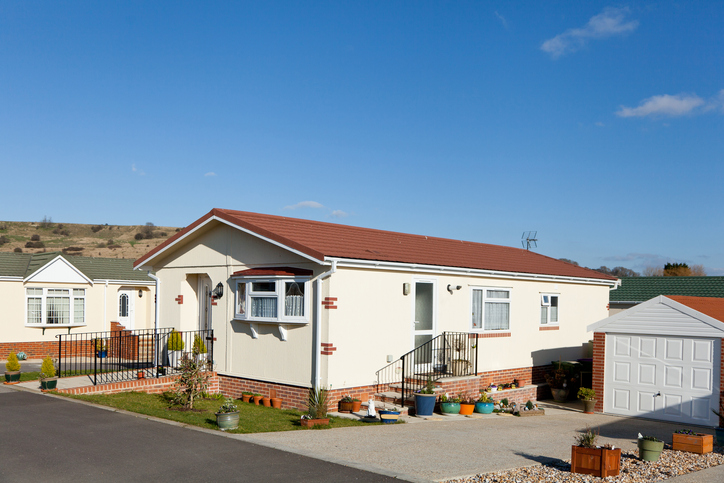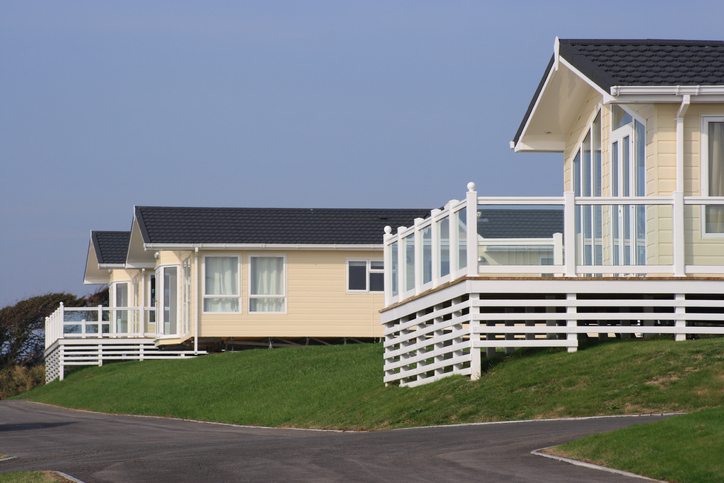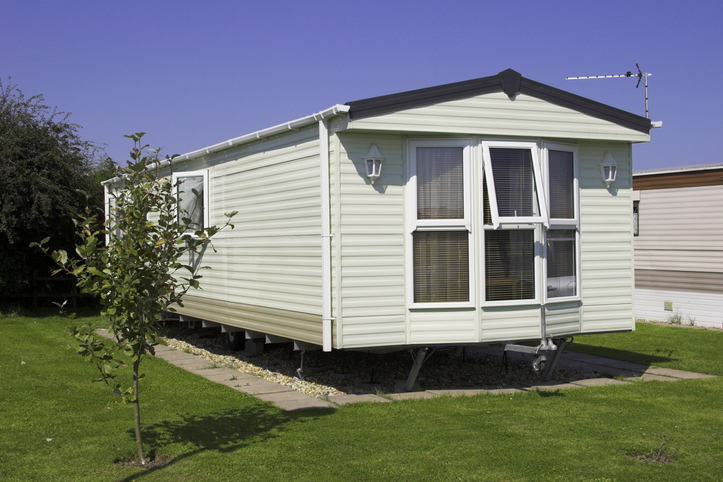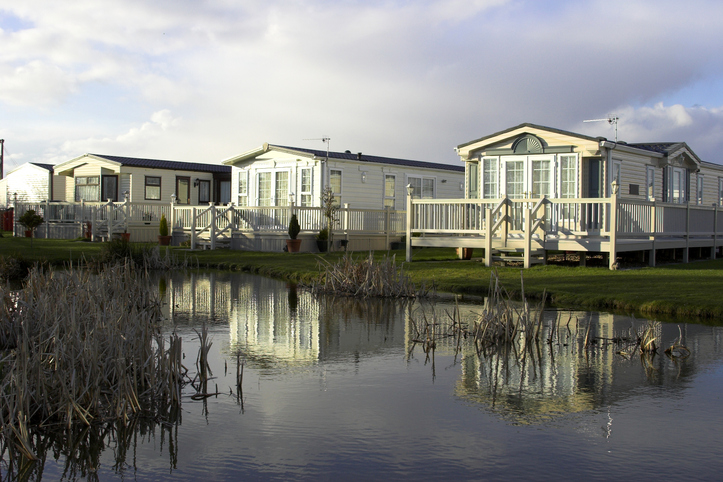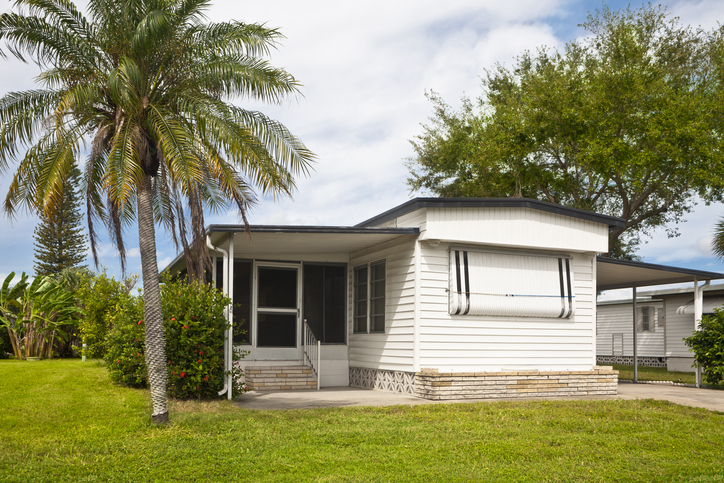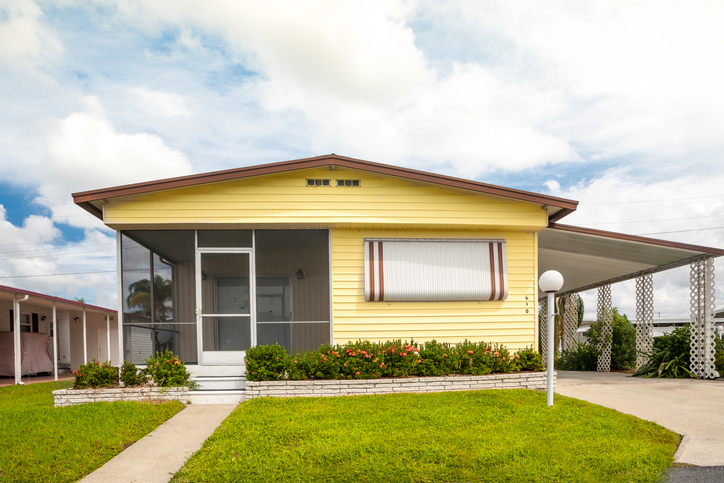4 years ago
·
Justin Becker ·
Comments Off on How to Unfreeze Pipes in a Mobile Home
Mobile home pipes are vulnerable to freezing. Why is that? Simple, they are located under the home where the air is colder.
Frozen pipes in mobile homes are common issues, and if you’re dealing with them for the first time, just know it won’t be your last.
A frozen pipe can inhibit you and your family from getting a regular water supply. In addition, it can cause more damage to your mobile home.
For example, the repair cost can be high, and the fact that you need water, you’ll be left with no choice.
You don’t have to pay the price of significant damage to your mobile home when unfreezing the pipes can be a DIY project at home. Learning how to repair the mobile home frozen pipes can save you from paying a couple of bucks to plumbers.
How to Unfreeze Pipes in a Mobile Home
Even though the task may sound complicated, unfreezing the pipe is somewhat a doable task.
The beauty of mobile homes is that you don’t have to ruin your walls or floor to access the pipes and fix them.

If you’re ready to learn how to unfreeze pipes in your manufactured home, you’ll not only save some money, but also spare yourself from the morning or late evening calls to your plumber.
If you want to learn about fixing frozen pipes, take a look at our guide below.
How to Locate the Frozen Pipes
Perhaps the most challenging task is identifying the frozen pipes in your mobile home. It’s nearly impossible to solve a problem when you have no idea where the source is, right?
That said, you need to identify the root problem before beginning any troubleshooting procedure. Hopefully, you have a sketch or blueprint of your home’s plumbing system. If so, that will come in handy, but if you don’t, that’s okay, too.
The most apparent sign of frozen pipes is your faucet not producing water. Fixing frozen pipes will be easy if you know which pipes are causing problems. With that in mind, turn on all of the taps in your mobile home.
If none of the faucets are producing water, the most likely conclusion is that the root problem could be from your main water supply, in other words, where all your pipes meet.
Suppose your bathroom faucet works pretty well, but the kitchen faucet doesn’t. Well, in this case, the problem could be right beneath the kitchen in your supply line.
You may not have x-ray eyes, but there are practical ways to spot frozen pipes without struggle.
Here are a few tips on how to identify frozen pipes in mobile homes:
- If you find leaks and cracks along your pipes, this might indicate that pipes have frozen over and cracked under the ice pressure. If this is the case, turn off the main valve and replace the damaged pipe as soon as possible.
- Suppose you leave your faucets on and run your hands over the pipes. You might be able to feel the parts with running water and where there is no running water. Particularly cold areas could be a sign of ice.
- You may want to use an infrared thermometer to detect areas of the pipe that are much colder than other areas.
- Try hitting the pipes with a solid object, for example, a screwdriver, at regular intervals as you move along it. A frozen section of the pipe will make a different, less hollow sound than unfrozen sections.
Once you have identified the root problem with your mobile home, it’s time to fix them. Here are several ways on how you can fix your frozen pipes.
- Use salt for thawing frozen pipes
- Use a hair dryer or heat gun
- Wrap pipes in hot towels
- Apply heat tape to the pipes
Use salt for thawing frozen pipes
The first thing you may want to try is salt to thaw the frozen pipes in your mobile home. What magic can salt do to your pipes?
Well, salt lowers the freezing point of ice, and thus salt can defrost your pipes way more effectively, even in comparison to more “aggressive” ways, such as heating.
Now, pour salt down the drain directly. For this method (pouring salt) to work effectively, you might want to dissolve the salt in warm water before pouring it down the drain.
However, it is crucial that you don’t use extremely hot water. High temperatures from hot water can damage the pipes, causing more problems.
If this method doesn’t seem appealing to you, check out what’s next in our tips list.
Use a hair dryer or heat gun
Even though applying a heat gun might sound cool, it’s a sensitive procedure that requires your attention. You don’t want to apply too much heat and damage the pipes.
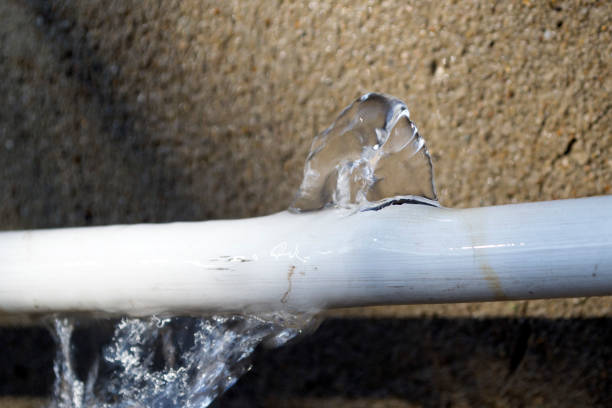
To use this tool properly, we recommend you keep the heat at the level of 125 degrees Fahrenheit to 150 degrees Fahrenheit.
Armed with your heat gun, point it towards the frozen water pipes; however, not too close. Wait until it starts defrosting.
Repeat the process in other affected areas as well, and soon you’ll have water running in your kitchen once again.
There are chances you might not have a heat gun lying around, well that’s okay. You can use a hair dryer as a substitute and still achieve the same goal. Similarly, don’t point the hair dryer so close to the frozen area.
Wrap pipes in hot towels
This approach might be a little cumbersome compared to other techniques we shared above. It may sound crazy at first, but those who have used this method before have testified it works.
Armed with a bucket of warm water and a couple of towels, wet the towels, wring them out, and wrap them around the frozen pipes. Make sure the towels are warm to the touch; if not, this technique will flop.
In addition, you will have to replace the towels every ten minutes, so this method will probably not suit those who lack patience or time.
Apply heat tape to the pipes
One of the easiest ways to keep your pipes from freezing is by use of electrical heating tape. These tapes have heating elements on its interior that warms anything it comes in contact with.
Typically, electrical heating tape is applied in a spiral pattern over the length of the pipe, ensuring that the tape does not touch or overlap itself. With that said, be sure to follow the instructions included with your tape.
In addition, you can also use a pipe heating cable. All you need to do is plug it in, wrap it around the frozen area and unfreeze your pipes in minutes.
How to Unfreeze Pipes in Walls
Breaking your wall and floor is probably not something you might want to do anytime soon. With that said, unfreezing pipes in the walls or floor can be a challenging venture.
For this reason, you need to be patient and tread carefully, not to cause more damage. However, by narrowing down to the part that seems the problem lies, you can localize your efforts and expedite the unfreezing and thawing out process.
Some of these methods can help you do just that.
- In conjunction with some other techniques, you can expedite the unfreezing of your manufactured home’s plumbing system by turning on your central heating.
Since the temperature needs to be set high, it’s a good idea not to be in your home during the process. To allow the heat to travel to the pipes quicker, move furniture or open cabinet doors that may be blocking the walls.
- A space heater will help heat any frozen pipe. If there are any vents or openings nearby, pointing the space heater toward those will be more effective, but merely switching on a space heater near the wall with the affected pipes will be helpful, nonetheless.
Be careful, though, since space heaters can be a fire hazard. Keeping an eye on space heaters is a must.
How to Keep Pipes from Freezing in Cold Weather
Preventing your mobile home pipes from freezing will always be better than fixing them. That said, there are practical ways that you can apply and spare yourself from frozen pipes the next time-temperatures plummet.
Replacing your mobile home piping can be a costly affair. That’s why you must take the following steps to winterize a mobile home.
Repair your skirting
The first thing is to make sure the skirting on your mobile home is in place correctly. Skirting protects the bottom of your mobile home. If the skirting is damaged, it will allow snow, water and cold air into the underbelly of your manufactured home.
Ideally, you should regularly check all skirting around the entirety of the mobile home. It’s the only way to be sure skirting won’t be the culprit to freeze your pipes.
Maintain your plumbing regularly
Pipes that are poorly maintained are vulnerable to freezing. That said, if you need to add a new heat tape, go ahead and do it.
Insulate the problem pipes
If you know that a particular pipe or pipes tend to freeze in winter, take care of them beforehand by wrapping insulation around to keep them warm. Use fiberglass, foam, or any other approved material you can find.
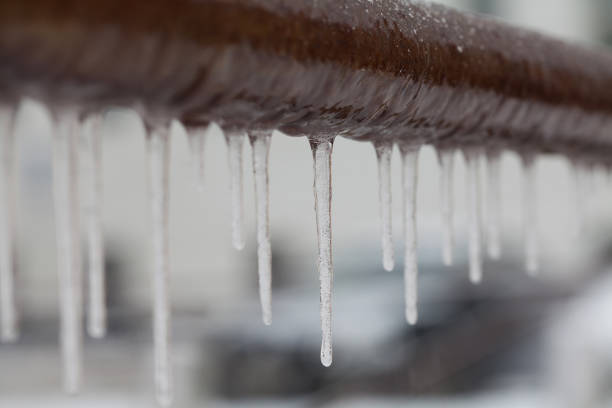
Drain your pipes before winter
If your home is going to be vacant for a while, it’s recommended that you flush all water from the system and turn off your main water line.
Turning off your main water line will save you from frozen pipes.
Keep your faucets dripping
This might not be exactly what you want to hear, as far as a utility bill is concerned.
If temperatures are expected to drop, keep your faucets dripping. This will prevent standing water in the pipes, which is what causes pipes to freeze.
Check your water riser and main water line
Make sure your water riser and main water line are insulated. For this reason, apply working heat tape that you keep running during cold weather.
As said earlier, prevention is better than cure. Take necessary precautions before winter arrives. It’s only natural to escape the burden of having to pay your plumber when you can take the proper measures into your own hands.
Should You Call Your Maintenance People?
Suppose you bought a new mobile home for sale in cedar springs, mi, or you moved into your first mobile home for rent in Cedar Springs, MI, and maybe it’s your first time in a winter setting, and one of your pipes froze. Naturally, if your pipes are frozen you’re likely to be stuck and short of ideas of what to do next.
Trying to figure out if you should call the maintenance crew can be challenging. The good news is that many mobile home communities in Cedar Springs, MI will be happy to help people new to trailer life.
Suppose you find yourself in such a situation (pipes freeze). In that case, it’s only necessary to call out for help from people with a wealth of experience in dealing with a frozen pipe and, generally, the plumbing situation.
Whether you call the maintenance crew or your immediate neighbor, it doesn’t matter. The most important thing is to get the problem fixed as soon as possible before the damage escalates. If you delay, you’re likely to pay a steep price.
How to Keep Your Mobile Home Warm During the Winter?
When winter comes knocking, most people look forward to doing a lot of stuff. From having delicious soups, drinking a lot of hot chocolate, watching favorite TV shows or reading all those books bought throughout the year.
Unfortunately, winter comes with its drawbacks, one being frozen pipes, among others. Before it starts snowing, check out the tips below on how to keep warm during winter.
Work on insulation – A properly insulated house ensures minimum heat loss; you can save as much as 25% on heating costs. Your heating appliances perform better when the home is properly insulated.
In addition, you might want to seal any leaks on the door, windows, walls and floors as part of the insulation process.
You might also want to consider the roofing design, especially if you live in a snowy zone. A green roof can also significantly improve the thermal insulation of a tiny home.
Weatherproof the windows – Windows are crucial in dissipating heat from the house. Therefore, it is recommended to weatherstrip the windows before winter arrives. Among the most common solutions include rubber, foam tape, and window films.
Choose thermal curtains for windows – To further prevent heat loss, it’s recommended to use thermal curtains since they are the most effective in such situations. Thermal curtains are best at blocking the heat inside. They help to create privacy and enhance the interior décor as well.
Use draft stoppers – Use draft stoppers to keep gusts of cold air from slipping in beneath your doors. You can buy them or create your own by filling a fabric tube with newspaper or simply using a rolled-up towel or blanket.
Electrical outlets – Check electrical outlets which can let heat escape your home, especially if cracked. After turning off the electricity, remove the electrical plate and reseal the inside with caulk to help keep warm air indoors.
Leave the oven open – Leave your oven open once it’s turned off after a home-cooked meal. This will share the oven’s heat with the rest of your home, instead of letting it go to waste.
Use area rugs productively – Area rugs increase the aesthetic appeal of the home interior and serve as effective heat insulators.
They don’t let cold pass up through them and help keep your feet warm. There are many rug designs, shapes, and sizes you can choose from; just make sure you get the fuzzy and woolly ones for winter.
Final Thought
Unfreezing pipes in a mobile home is often challenging, especially if you don’t know what to do. Fortunately, with the great tips shared above, you can bid goodbye to freeze pipes, at least for now.
The best way to avoid pipes freeze is regular maintenance (applying heat tape and so on) of your piping. Nevertheless, if you find yourself with a frozen pipe, it’s necessary that you fix them as soon as possible to avoid further damage.
It can be costly when you fail to fix a frozen pipe in a timely manner.
Read more
4 years ago
·
Justin Becker ·
Comments Off on Homes for Rent in Cedar Springs, MI: Where to Find Them
A home might be a valuable asset, but not everyone can afford its price until they reach a certain point in their lives.
At the moment, thousands of families, couples, single individuals, and other groups are looking for a place to rent in the busy locality of Cedar Springs, MI. Cedar Springs is not just a delightful place to live in, but it’s also great for those who are just starting out in life and want to work their way up.
Many folks may not be able to get a home of their own with the current price rates, or they just don’t deem it to be the most convenient choice. Renting a property allows one to stay relatively mobile, just in case their career takes them to other places or they want to relocate for some other reason.
Living in rental apartments in Cedar Springs, MI can be a delight as well, however, finding just the right property might be a challenge.
Let’s talk about some of the top rent options available in this area; the discussion might make things a lot easier for potential renters.
Homes for Rent in Cedar Springs, MI
Below are some of the most efficient and popular ideas for finding houses and apartments for rent in Cedar Springs, MI:
1. Cedar Springs Mobile Estates
If you’re looking for an affordable home with average rent or just a place that’s convenient and easy on the pocket, try Cedar Springs Mobile Estates.
This is a highly recommended step, as they entertain accommodation requests for rent in prime locations.
Cedar Springs Mobile Estates give renters a community near Michigan’s major expressways. The distance from the Cedar Springs Mobile Estates and the US-131 expressway is just 1.5 miles, in Cedar Springs. Cities like Rockford, being only seven minutes away, and Grand Rapids, only 20 minutes away, are also nearby.
With one of their offerings, you can get to a shopping center and the Cedar Springs Public Schools in a matter of minutes.
Though Cedar Springs Mobile Estates does not offer apartments, you get a lot of choices in houses for rent.
There are double-wide modular homes and single-wide homes, with all the houses having at least 2 to 4 bedrooms, plus 2 bathrooms. The dimensions of these homes can go from 900 to 2,000 square feet, or even larger at times.
Before making any decisions, here’s what you need to know about living in a mobile home.
Why Should You Consider Cedar Springs Mobile Estates
The following amenities and features will be at your disposal when you rent at Cedar Springs Mobile Estates:
- Pets are allowed
- Safe sidewalks on each property
- Home sales available on-site
- Rentals for most demographics available
- Wide range of choices for rent with more than one bathroom
- Average current rent starting at $885 to $995 or more, which includes lot rent
In short, if you’re in search of an amazing manufactured home community in one of the Cedar Springs areas, this option is an excellent one. You can rent a dream home that’s pocket-friendly, along with being in a community that fosters a sense of belonging.
With Grand Rapids and so many other attractions nearby, it won’t be hard to plan a fun trip or quick getaway.
2. Web Property Sites Dealing with Real Estate
A lot of potential home renters find their dream rental on listings found on the internet.
Web property sites that deal with real estate offer a convenient and quick way for folks to search the most likely choices for a rental property. Whether you’re looking for a small apartment or a large family home to rent, most real estate web property sites will let you filter the property search and look through the relevant listings only.
With these web property sites, one can view a lot of homes and then shortlist them. There are also several mobile homes, planned communities, and newly-constructed homes for rent in Cedar Springs, MI at the moment.
Narrowing Down the Search
To narrow down the search for an apartment or house for rent on web property sites, use the exact location and requirements you want.
For instance, the location of Cedar Springs itself is a convenient one. However, some families might want to live as close to a particular school as possible. Others may look for newly-constructed buildings so that they can enjoy modern utilities and systems in their home.
As always, make sure to check out every detail of the listings and price. The square feet and numbers of bathrooms, plus bedrooms, are all important. However, check out the dimensions of the rooms and see if they are spacious enough as well.
3. Brokerage Firms Dealing in Real Estate
Real estate brokerage firms are a good option if you don’t want to look for a rental property on your own. These firms provide professional agents that specialize in real estate and provide a personal connection, who can probably find your dream home very quickly.
What’s more, these agents have real estate licenses and can access a lot of listing services. A multiple listing service will give them all the homes listed by the brokerage firm.
Not to mention, rental brokers know the nuances of the local real estate market inside out. They can help out by providing a personal connection in telling you just where to search and whether a property will be within your budget or not.
4. Ask Around Within Your Social Circle
Online tools and professional agents are great, but making a personal connection with trusted friends and/or family members wouldn’t hurt.
These are the people that are the most likely to give you a personal connection with honesty and unfiltered advice about their own experiences and knowledge.
That being said, don’t just rely on hearsay and rumors, though. It helps if the person you’re making a personal connection with is a real estate agent or just knowledgeable about real estate in general.
Even though online tools can narrow down your search faster, you shouldn’t omit consulting friends and family from your search criteria, especially if they’re professional real estate agents, or rather good at real estate generally.
Asking your social circle may also include posting your query on social media. It’s a good idea to be wary of disclosing your future plans to strangers online. However, a Facebook group centered around Cedar Springs property or real estate might give you some important insights.
Whichever group you come across, you must never reveal your personal information on public groups.
5. Drive-Through or Virtual Scouting
Many of the houses and apartments in Cedar Springs may have the option of temporary access to a virtual tour.
Keeping in mind the distances and pandemic restrictions, this might be the best choice for most potential renters.
A virtual tour will allow people to check out the places from a remote location. You save money on the gas, stay safe in your own location, and still get an idea of the house or apartment before paying any rent.
Some may not be satisfied with this, though. So, see if a physical visit is allowed. This way, you can check and ascertain if the virtual tour really showed things as they are.
Potential Places to Check Out:
Below are the top communities to check out for rentals in and around Cedar Springs, MI (after Cedar Springs Mobile Estates):
- Marcell Ridge Apartments
- Sparta Terraces Apartments
- Shaw Lane Apartments
- Meadowcreek Apartments
- Red Flannel Acres Apartments
- CedarRock Apartments
- Apple Tree Apartments
- Ida Red Apartments
- Royal Glen Apartments
- Churchill Place Apartments
The Takeaway
Cedar Springs, also known as the “Red Flannel Town,” is a lovely place for living, working, and building yourself up.
There’s a friendly community, numerous activities, and several types of rentals to accommodate your housing needs.
Don’t wait around too long, or all the best options might be snapped up very soon! Read up on the 10 things that everyone in Cedar Springs knows to be true before you move, and you should be better prepared for life in this thriving community.
Read more
4 years ago
·
Justin Becker ·
Comments Off on How to Super Insulate a Mobile Home
Most mobile homes developed before 1976 contain approximately 1–4 inches of poor insulation, if they have any.
Even in cases where insulation was installed, it has been found that developers left gaps and voids throughout the mobile home.
Fortunately, mobile home developers have improved their designs after the HUD Code began making serious advances in mobile home insulation.
Insulation in your home can increase your family’s comfort, minimize heat loss, and reduce energy costs.
Let’s explore more about mobile home insulation.
How to Super Insulate a Mobile Home
Here, we answer several questions, including measuring insulation, what it involves, and why you need it in your manufactured home.
Benefits of Insulation in a Manufactured Home
As per the Department of Energy requirements, mobile homes developed before 1976 require insulation to be added.
A new manufactured home can also benefit when you add insulation.
Reduced Energy Bills
According to the Insulation Institute, homeowners stand a chance of saving 15% on energy from heating and cooling when they add insulation to their manufactured home.
The energy-efficiency of the heating and cooling in homes, developed many years ago, will increase, since most of them are poorly insulated to start with.
Various insulation projects can greatly boost energy efficiency in your home. Here are five effective insulation projects to implement:
- Window & Door Insulation: According to windows and doors Edmonton experts, upgrading to energy-efficient units, or sealing gaps around existing ones, prevents drafts and reduces heat loss. Double or triple-glazed windows, weatherstripping, and caulking can significantly improve a building’s energy efficiency by up to 55%.
- Attic Insulation: Insulating the attic prevents heat loss during winter and heat gain during summer, reducing energy consumption for heating and cooling. Insulating materials like cellulose, fibreglass, or spray foam can be used for this purpose.
- Wall Insulation: Adding insulation to external walls, either in the cavity or interior/exterior surface, can significantly enhance a building’s thermal performance. Spray foam, mineral wool, or rigid foam boards are suitable options.
- Basement and Crawlspace Insulation: Insulating basements and crawl spaces minimize heat loss through the building’s foundation, decreasing energy costs. Options include rigid foam boards, spray foam, or fibreglass batts.
Investing in these insulation projects can reduce energy consumption, lower utility bills, and improve overall comfort in a building.
Increased Comfort in Your Manufactured Home
Apart from saving on mobile home energy costs, your family will also enjoy the increased comfort.
Having an insulated manufactured home makes your family stay warm during winter and cool during summer.
The R-Value
To select the best insulation for your manufactured home, you’ll have to consider its difficulty or ease of installation, the R-value, and the level of energy-efficiency you get for your effort and money.
Generally, heat energy flows from warm to cool areas. This means that during winter, the warm air in your manufactured home will escape outside.
During summer, hot air from outside will try to flow into your mobile home. This is what constitutes convection and conduction.
The R-value measures the ability of a material to resist the flow of heat energy. A higher value means that the material is more effective at insulating your manufactured home.
Currently, the HUD Code recommends a minimum of R–19 for use in insulating ceilings, floor, and walls in a manufactured home.
Conduction in a Manufactured Home
Conduction refers to how heat energy travels through a material. Insulation works to prevent this conductive property.
With the perfect insulation, your home becomes more energy-efficient, thus, less heat energy will flow through your walls when there is cold air. It’s, therefore, critical that you install quality products in your manufactured home walls.
Convection in a Manufactured Home
Convection involves how heat energy circulates through the air.
Preventing the flow of air through convection, within openings and walls, controls the usage of mobile home energy, thus improving its energy-efficiency.
Popular Insulation Types in a Manufactured Home
Let’s focus on the different types of manufactured home insulation:
Blanket: Rolls and Batts
This is by far the most common insulation type for a mobile home. It is available in rolls (cylindrical pieces) and batts (rectangular pieces).
It’s created from flexible fibers and constitutes the best option for joint and stud spacing.
Foam Board
Where rolls and batts are flexible and soft, foam boards offer excellent thermal resistance and are quite rigid.
The foam acts as a belly board for manufactured homes and has proven effective for new roof overs.
Blow-In or Loose Fill
Blow-in and loose-fill are made of small particles that you can use to fit into any space with amazing flexibility.
For this reason, they’re perfect for areas with oddly shaped spaces and obstructions. It’s also used in a mobile home that was developed many years ago.
Sprayed or Injected Foam
Insulating a manufactured home using foam insulation has become very popular over the past few years.
Even though this insulation type is liquid, in the container, it will foam out and expand in all directions. It’ll also harden when you add insulation to your manufactured home.
Foam insulation also fills the smallest spaces to form an air barrier.
Injection foam is applied in enclosed spaces, such as walls. However, there are energy-efficiency professionals who have questioned the foam insulation ability.
Regular tests have revealed that the R-value of foam insulation isn’t as good as regular loose-fill or batt. The product is also messy and can get into places you didn’t expect, or want.
Materials Used in Mobile Home Insulation
Each of the insulation types above is made from various materials.
Fiberglass
Fiberglass is the most common insulation type used for insulating manufactured homes. This material doesn’t rot or burn.
Fiberglass is a fiber-like material that is developed from glass. Its structure is developed from molten glass, formed into small fibers.
There are two types of fiberglass insulation:
Blown Fiberglass
Blown fiberglass insulation is the best option, if you’re seeking materials that save mobile home energy. It’s especially great if you’re doing a remodel.
Batt Fiberglass
It is a combination of glass and air that makes this insulation. Batt fiberglass is common between studs in manufactured home walls, however you can also use it between joists.
Batt insulation is developed either unfaced or faced. If you want to increase the energy-efficiency of your mobile home, go for the unfaced batts.
Advantages of Fiberglass
Since fiberglass is made from soft fibers, it’s very flexible. It’s also effective and will save you money.
For this reason, it has been used in most homes for decades.
To use fiberglass, it doesn’t require specialized tools except for skin protection and breathing masks.
Disadvantages of Fiberglass
Fiberglass traps moisture, unless you use plastic-sealed batts. For this reason, it can easily lose its effectiveness.
The small glass fibers from the material can be dangerous, healthwise, when you breathe it in. Research has shown that they can damage your lungs and lead to allergies. It can also cause damage to your skin.
The R-value of fiberglass also decreases with time, and, in many cases, batt insulation happens to be installed incorrectly. Homeowners tend to install rolled or batt fiberglass insulation inside out, thus reducing its energy-efficiency drastically.
Foam Board
Foam board is another common material used to insulate mobile homes. The materials are made from plastics.
Foam is available in different shapes, including rigid foam board. It is also sprayed as a liquid that hardens. Rigid foam is developed from various plastics, including:
- Polyurethane sprayed
- Molded expanded polystyrene (MEPS)
- Extruded Polystyrene (XPS)
- Expanded Polystyrene (EPS)
- Foamed-in-place polyurethane insulation
Advantages of Foam Boards
Rigid foam boards are reputable for offering a high insulating value as opposed to fiberglass. For instance, a spray-in foam is perfect for difficult-to-reach and awkwardly-shaped areas. It also eliminates the chances for moisture, pollen, dust, and mold.
Disadvantages of Foam Boards
The material is expensive compared to fiberglass structures. Foam boards can’t be installed as part of a DIY project and will always take longer to install.
Cellulose
Cellulose is developed from recycled paper instead of glass.
The other natural materials employed for insulation include:
Advantages of Cellulose
The material is an environmentally friendly option thanks to being made from recycled products. It doesn’t have the risk of lung damage.
Disadvantages of Cellulose
In most cases, you must replace it after every five years. You’ll require a professional to install it for you, unlike fiberglass that requires a DIY.
Insulation that is Best for Every Mobile Home Section
Apart from just selecting the type of insulation material that is perfect for you, one must also consider the best insulation for each section of the mobile home.
After making the decision, we recommend you contact a professional to install everything for you.
Mobile Home Belly and Floor
If you can completely access the underside of your manufactured home, you might consider using foam board or fiberglass rolls/batts.
Rolled and batt insulation can comfortably fit between manufactured home joists, but require several cuts.
Foam boards will also require much cutting, but it’s easier to handle.
If you don’t have full access to your mobile home belly and floor, consider using a blower to spray insulation. Ensure your floor is well insulated to keep your feet warm at all times.
Mobile Home Wall and Siding
Mobile homes that were developed before 1976 had poor insulation and thin sides. For instance, windows were poorly designed.
With that said, you can cut and size rolls and batts, to fit the inside walls of your manufactured home, using the stuffing or the ‘stuff it’ technique.
This is the best approach if you’re remodeling your mobile home.
Mobile Home Ceilings
Apart from having insulation in your walls and windows, you can also insulate your manufactured home ceilings.
Here, you can use foam spray or an injection method to prevent convection and conduction, thus making the home more energy-efficient..
The drill and plug method is the most common insulation approach to access the attic of your roof insulation or ceiling. There is also the option of blowing insulation into the attic, of your roof or ceiling, through the exterior of your mobile home.
Even though it’s cheaper to insulate your roof and ceiling yourself, it would be better to hire a qualified contractor.
Replacing Old Windows
Replacing your old windows with new energy-efficient ones is a decision that will not only improve the appearance of your manufactured home’s exterior and interior, but also reduce energy consumption.
Always go for windows with insulated vinyl frames for maximum energy-efficiency. Vinyl windows also eliminate the need to use storm windows.
Even though storm windows are also energy-efficient, vinyl windows perform a better job.
DIY Spray Foam
Spray foam has been in use for a long time on manufactured homes.
Previously, there was only the option of using a specialized blower to blow insulation into a cavity of your manufactured home. For this reason, it was only accessible to people who could afford a company with high-quality equipment.
Nowadays, there are DIY kits that you can use to install insulation in your manufactured home. However, certain situations will require you to hire a professional.
For instance, you’ll need a professional who understands manufactured home plumbing and electrical systems, so you don’t mess anything up.
It would also help to have an understanding of evaporation and air sealing. Still, insulating yourself with spray foam is a smart manufactured home improvement approach that will save you energy and money.
Conclusion
It’s a fact that most affordable mobile homes aren’t insulated properly. Fortunately, insulating a mobile home is a pretty straightforward process.
With the technology available today, it’s easy to incorporate substantial R-value insulation into your mobile home, at an affordable price.
If you install insulation in your manufactured home, you’ll benefit from having a comfortable and warmer mobile home, whether your mobile home is new or was developed many years ago. You’ll also save a lot when it comes to mobile home energy bills.
Installing your windows, walls, or roof insulation is among the best improvements you can make to a mobile home, especially if it was developed several years ago.
We hope that you insulate your mobile home so you can live in a comfortable environment and minimize heat loss.
Read more
4 years ago
·
Justin Becker ·
Comments Off on How to Transfer a Mobile Home Title in Michigan
Whether you’re new to mobile homes or an expert, there’s typically no legal way to transfer ownership of a mobile home without a title. Either way, in order to complete a manufactured home transaction, you’ll have to understand everything there is to know about a mobile home title.
A mobile home title is more than just a paper. In almost every state, mobile homes and manufactured home ownership is transferred from buyer to seller via a slip of state-issued paper called a title.
No matter if your home is a single-wide, double-wide, or even larger, in order to declare ownership, you will need to have a title for the home in your name.
How to Transfer a Mobile Home Title in Michigan
Mobile homes are titled in Michigan. The mobile home title serves the same purpose as the vehicle title. Up until 1978, mobile homes were titled as a “trailer coach.” Since 1978, they have been titled mobile homes.
The DMV or State Agency/Secretary of State is responsible for processing manufactured home titles.
What’s a Mobile Home Title, and Why is it so Important?
A manufactured home title is a legal document that proves you own your manufactured home. Without it, it’s hardly possible to claim ownership of the manufactured home.
Whether you’re buying from a dealer/retail center or directly from the current owner, you’ll need to be presented with a title.
If you bought your home from a retail home center, they might be required to obtain a title for you, depending on the law in the state where your home is or will be located.
In Michigan, the process of a transferred mobile home title, from one of the mobile home owners to the other, is pretty simple and clear.
Anyone can acquire their title without struggling. The Secretary of State office will guide on how to proceed.
What to Do Before the Mobile Home Closing
The most important thing at this stage is to verify the ownership of the manufactured home. Verify that the seller is listed as the sole owner of the manufactured home. It is a terrible idea to skip this part of the deal.
Ask the seller to provide you the title details: As soon as you verify the details in the title match the seller’s personal information, you’re good to go.
Mobile home in a park: If the mobile home is placed on a private leased lot, you have little to do compared to homes in a park. If the manufactured home is in a park, you will want to speak with the community manager to achieve the following:
- Become park approved
- Verify the seller is current on all payments
- Ask for a copy of the park rules
- Ask if lot rent is increasing soon
- If the park manager sees any needed improvements to the mobile home for if/when you purchase the home?
Check for hidden liens: It is essential to check for secret liens. You don’t want to have problems later after a manufactured home closing. That’s where the Secretary of State office comes in.
Contact the DMV office/Secretary of State in the county the home is located. Provide them with the mobile home’s serial number or VIN to verify there are no unexpected liens that you may not know about. These liens may or may not be listed on the mobile home’s title, in the “Lien’s Holder’s” section.
Check for back taxes: It’s mandatory to be tax compliant. As such, contact the county clerk’s office in the location of the home and provide them with the mobile home’s serial number or VIN to verify the taxes are current.
You may want to verify the taxes are current before buying the home. If there are any due taxes, it’s only reasonable to deduct the amount owed from the purchase price you will give to the seller. This way, you can pay the back taxes when you transfer the title soon.
How to find a VIN number on a manufactured home: We most often find it on the wall of the master bedroom closet, but it might also be located near the back door or under the kitchen sink on the inside of a cabinet door.
The VIN will be called a manufacturer’s serial number on the data plate.
Paperwork Needed for a Mobile Home Closing
When closing the mobile home, the following paperwork will be crucial:
● Title (must have)
● Bill of Sale
The seller wants your money as badly as you want the property at your disposal. As such, never be in a rush to hand over the money.
Conduct a final review of the home and ensure everything is in place as you want. For example, if there’s any repair needed, you can work out with the seller to get that sorted before acquiring the home.
Transferring the Mobile Home Ownership
The transfer of ownership is done at the DMV office/Secretary of State. As such, bring the forms to your local DMV office to pay the transfer tax and then transfer ownership.
Even though sellers don’t need to be present, it can be convenient to have the seller present just in case any last-minute issues arise at the DMV.
The transferred mobile home title fee is $90 in Michigan, plus a 6% sales tax based on the purchase price listed on the title and bill of sale.
The same fee of $90 is charged when acquiring an original title.
The new buyer’s title should be expected in the mail within 7-14 weeks after correctly turning everything in with the DMV.
If, for some reason, there’s a lienholder still on the title, it can not be cleared up at the DMV. For this reason, you will not get the original title until the lienholder debt is settled.
The clerk at the Secretary of State will ask for the lienholder details, and the new title will be sent to the lienholder’s address.
If the lienholder is satisfied or the debt is settled, they will then transfer the ownership to you through the DMV/Secretary of State office.
As we said before, while a seller doesn’t need to be present at the DMV office/Secretary of State, if you are a seller, you may want to make it there and ensure ownership is transferred correctly. This way, you can be assured that taxes and liability are not in your name moving forward.
Mobile Home Title: Things to Know
When thinking of buying or selling a mobile home, you’ll need first to understand what a mobile home title is.
Here are the top facts to know about mobile home titles before you buy or sell this type of real estate property:
Mobile home titles list essential information: If you’ve never seen mobile home titles, you’re likely to wonder what’s on them, right? It includes more critical information than just naming the owner.
Mobile home titles should include the following facts about the property:
- The name of the owner
- The names of any lienholders
- The vehicle identification number of the mobile home
- The make of the home
- The model
- The year it was built
A title will tell you about any liens on the mobile home: A mobile home title can tell you if the current owner has any liens on the property. This means the current owner owes taxes or fines on it.
No one wants to end up buying a mobile home that has liens that they have no idea about, right? If, for some reason, you fail to settle the lien issue before buying the house, then you’re likely to be liable for the costs.
It’s the reason why asking for a title from the seller is so essential before proceeding to close the home.
If there are liens on the property, the owner won’t have possession of the title anyway. The lienholder usually holds onto it until the debts are paid.
It’s always best to check at the DMV to find out if any liens are listed with the property before buying. It is the surest way to do it.
Some states have extra requirements for mobile home titles: Different states handle mobile home title transfers differently.
In some areas, once you get a title, you don’t have to go through any other special steps before you’re able to transfer ownership during a mobile home sale, which is how it goes in Michigan.
Other states, however, have a few extra guidelines you need to follow when it comes to titles.
For instance, in Illinois, the title needs all the essential information listed above, along with a thorough description of the property.
Also, if the mobile home is not being placed in a mobile home park, the new owner has to contact the county recorder to file for a mobile home registration.
In Mississippi, mobile homes can be titled motor vehicles. When you apply for a title in this state, you have to include the current owner’s contact information, the contact information of any lien holders, a description of the mobile home, an odometer disclosure statement, and more.
In New Jersey, getting a mobile home title is similar to getting a title for a car, except you don’t have to get an inspection and registration along with the title.
Lastly, in New York, you don’t need a title if the mobile home was manufactured in 1994 or earlier.
So, before you buy or sell a mobile home, it’s helpful to check on your state’s specific rules for the titling process.
Getting a duplicate title is simple: In most states, you’ll have trouble selling a mobile home if you can’t find the title. Luckily, it’s easy to get another copy. In some cases, you can also find the details about your mobile home title on free people search engines.
If your mobile home title is lost, you may replace it by processing a duplicate title application at a Secretary of State branch office.
Call the DMV to request a duplicate title application and provide information to prove you’re the owner of the home. For you to get the duplicate title application, you may pay a small fee for the service.
Conclusion
A title is an important document. For this reason, make sure all details are checked thoroughly before buying the mobile home. It can be a terrible idea to buy a home that still has unresolved issues with liens.
Since mobile homes are considered personal property, and not real property or real estate, the DMV will handle any documentation needed for the home. For instance, in the event of a lost title, you may want to contact the DMV and request a duplicate title application.
Read more
5 years ago
·
Justin Becker ·
Comments Off on Mobile Home Living: What You Need to Know
Mobile homes have become some of the most reputable homes in the world today, thanks to their affordability and energy-efficiency.
The majority of people living in mobile homes are between the age of 18 and 29 years. The second group is between 50 and 59 years, mainly made up of those approaching retirement age.
It is a fact that these homes appeal to various individuals, not only in the United States, but the world at large. You can either find a single-wide, double-wide, or triple-wide unit.
Whether you like or don’t like these homes, there is so much to learn about them. Here, we look at some ins and outs of manufactured homes.
Mobile Home Living
Mobile home living offers the best feeling. Here are the things you need to understand about mobile home living:
What is a Mobile Home?
Mobile homes are sometimes referred to as manufactured homes. They are homes designed and developed, by trained professionals, in a controlled factory environment.
The construction process of a mobile home normally takes about 2 to 3 months. The stockpiled materials that the manufacturers purchase make this process inexpensive and efficient.
The average cost of these homes is about $49 per square foot. This is about half the cost of a site–built home, per square foot.
After a mobile home is built, it’s transported to the site and then connected to water, sanitary systems, and local power.
In most cases, these homes are linked to a permanent foundation.
Pros of Mobile Home Living
Mobile homes have many advantages, as we’ll highlight below:
Mobile Homes are Quality-Controlled and Safe
Mobile homes are developed under the HUD Code, which was created in 1976. The code is there to address the production process employed to produce manufactured homes.
HUD Codes help these homes meet energy-efficient standards, fire safety, structural design, construction, and transportation to your home site.
The code is there to make you feel reassured that your manufactured home will be quality-controlled and safe.
Manufactured Homes are Affordable
The cost of a manufactured home is lower, when compared to a site-built home. This, therefore, makes it more appealing to homeowners that don’t have enough resources to buy or rent a stick-built home.
A mobile home is among the primary sources of non-subsidized affordable housing globally. Buying a mobile home can be cheap compared to even renting an apartment.
As we have mentioned above, the cost of a mobile home per square foot is about half that of a traditional site-built home. Mobile home living is, therefore, very affordable.
Mobile Home Living Offers a Speedy Alternative
We all know that house construction consumes twice the money and twice the time. It also encounters extra costs and delays, which is challenging to the buyers.
On the other hand, mobile homes present a straightforward construction process. The homes are created in factories, on assembly lines. This means that you can get a high-quality home within a very short time.
Mobile Home Living is Environmentally Friendly
Mobile homes are also energy-efficient, just like site-built homes. Manufacturers of these homes always test new techniques and materials to make improvements on these homes.
Mobile Home Living Offers Flexibility in Design
When you choose a manufactured home, manufacturers can let you customize it, or select a unique layout, at an additional cost.
The extra costs are always less than building or buying a site-built home. Furthermore, you’ll get all the additional features that you want.
These Homes Offer a Sense of Community
Most of the time, these homes are placed in a mobile home community. You’ll get a sense of community here since you’ll easily interact with others within the manufactured home park that you reside at.
Within a mobile home community, you can engage in group activities, social clubs and have caring neighbors.
Cons of Mobile Home Living
As much as manufactured housing/mobile home living has its benefits, there are also disadvantages to it. Let’s look at the cons below:
These Homes Require the Right Piece of Land
Most people prefer to put their mobile home in a mobile park. However, you can also put the home on your own private piece of land.
For the case of a mobile home park, you must either lease the land or buy a space. When you decide to own a mobile home, you must also put it on land with proper access to existing utility services.
This isn’t possible in certain spots, especially in rural areas. The cost of site preparation, in certain locations, might make mobile homes cost-prohibitive or difficult to acquire.
Mobile Home Living Comes with Stigma
There are areas within the United States that still face bias towards mobile homes. This is despite mobile homes having modern designs and manufacturing methods. The homes also have an improved reputation.
The bias implies that there are communities that specifically prohibit manufactured housing units outside of mobile home parks.
Fortunately, this bias is slowly shifting, for the better, and more people are now acquiring mobile homes without fear.
Some areas are even revising zoning requirements and laws to allow mobile homes to meet affordable housing needs.
Specific Lender Requirements
Mobile and manufactured homes are considered personal property, not real estate properties, as you would expect. This impacts the buyer’s financing options and planning.
Mobile homeowners are, therefore, not eligible for normal mortgages. If you want to purchase a mobile home using a loan, you can consider manufactured home-specific lenders or take out a personal loan.
These Homes Lack a Long Term Value in Certain Locations
There is no hiding that a mobile home has a lower value compared to a traditional home. This could be either a bad or good thing, based on your situation.
For instance, it might imply that you’ll pay lower taxes. However, a lower value typically also means a lower resale value.
A long-term appreciation of a manufactured home is lower than a site-built home. Before you buy a manufactured home, you should be aware of its lower long-term value.
States with the Most Mobile Homes
There are certain states in the U.S. where mobile homes are very popular. Below are some of them:
- South Carolina: 17% of the housing are mobile homes
- New Mexico: 16% of the housing
- West Virginia: 15% of the housing
- Mississippi: at least 15% of the housing
- Wyoming: at least 13% of the housing
- Alabama: 14% of the housing in the state
- Louisiana: at least 13% of the housing
- North Carolina: at least 13% of the housing
- Kentucky: at least 12.5% of the housing
- Arkansas: 5% of the housing
Even though some of the above states are also among the poorest in the U.S., the high rate of manufactured homes doesn’t line up with income.
You should also understand that not all of those who settle in trailer parks are poor.
In fact, in states such as Florida and Michigan, mobile home living doesn’t have any stigma.
Some love to stay in home parks because they are affordable and they get a built-in community, with good neighbors that they can hang out with.
How to Buy a Mobile Home
If you are interested in buying a mobile home, then you aren’t alone. These homes will provide the same comfort as site-built homes, but at an affordable price.
Below is the process for buying a mobile home:
Settle on a Location
There are a few options, as far as the location of your manufactured home is concerned. You can either join a mobile community, rent a lot, or purchase land.
If you decide to buy land, you’ll have to include the cost of water, electrical connections, and septic system. The lot should also be in a place that allows mobile homes.
If you rent land, you don’t always have to worry about utilities, since they are covered, at times, in the rent. However, you should confirm this before you rent.
In a home park, you’ll have amenities included in your rent. However, you won’t enjoy as much space and freedom, since you’ll be living around other people.
Remember, there is no right or wrong answer to the decision you make.
Select the option that is friendly to your financial and family’s situation. You can also consider whether you want neighbors or not.
Shop Around
There is a wrong impression, among people, that mobile homes are all the same.
Even though the homes are all inexpensive, some are nicer than others.
For instance, you’ll most commonly come across two types of mobile homes:
With this being said, you’ll always get what you pay for. For instance, single-wide units are smaller than double-wide units. Manufactured homes always come in different sizes, shapes, and levels of luxury.
If you shop around, you’ll find a home that is perfect for you, whether you go for a single-wide or double-wide unit.
A double-wide unit is typically for those who have a family.
Get Insured
If you want to secure yourself from the unknown, ensure that you invest in reliable insurance services.
Manufactured home insurance protects you against:
- Theft of belongings
- Liability for any personal injury
- Coverage against wind, fire and water damage
However, remember that manufactured home insurance is expensive, compared to household insurance.
You should, therefore, do enough research before investing in an insurance policy.
Donate and Recycle
Mobile homes have limited storage spaces, compared to traditional homes. For instance, you won’t have an attic, basement, or many closets with mobile homes.
Therefore, before moving to a manufactured home, you must donate or recycle any extra items or clutter that you don’t need.
Personalize Your Manufactured Home
Manufactured homes aren’t the one-size-fits-all type.
You should, therefore, design and personalize your manufactured home, no matter if it is a single-wide or double-wide unit.
Below are some of the elements that you should design on the interior and exterior:
- Interior: kitchen, bathroom, paint color, floor plans, and living room
- Exterior: Siding, porch, colors, roof, and windows
Conclusion
Mobile homes are among the most affordable housing options that you’ll ever come across. These homes offer a speedy alternative, are environment-friendly, and offer a sense of community.
However, before you buy or rent a mobile home, there are things that you must carefully consider. Only buy a home if it meets your needs, and those of your family.
If you have a large family, go for a double-wide unit. We hope that your mobile home living becomes a beautiful experience.
Read more
5 years ago
·
Justin Becker ·
Comments Off on Selling a Mobile Home in Michigan: The Ultimate Guide
Selling a mobile home in Michigan is a little different from selling a traditional home. If you think they are the same, then you’re definitely mistaken.
Traditional homes and manufactured homes require different approaches when it comes to selling and marketing them.
Also, every mobile home is different, and so is every location. Therefore, it’s in your best interest to tailor your selling strategies to suit the area you plan to sell your mobile home. As such, you will increase your chances of selling the mobile home.
Selling a Mobile Home in Michigan
Selling a manufactured home in Michigan can be challenging if you don’t arm yourself with a few tricks.
For example, it’s ideal to have all of the documents ready, such as the mobile home title, bill of sale, and so on. It’s unlikely for a buyer to agree to any deal without seeing the home title, among other documents.
If there’s a need to sell your mobile home, then sell it at a good price. To do that, you need adequate preparation.
To help you get ready for your mobile home sale, we have prepared a guide to lead you through the process.
Prepare for the Market by Cleaning
If you are looking to sell your manufactured home in Michigan, the first thing to do is get it ready for the market. Prepare for a thorough mobile home cleaning, and the best way to handle that is to make a checklist of everything that needs your attention.
You may want to begin with putting away more oversized bulky items you are not using, or donating them, and a deep clean of both the inside and outside of your residence.
Hiring a professional mobile home cleaner will be a lot easier for you. Also, replace major appliances and have your exterior power washed.
On top of all of this, make all necessary repairs to restore the mobile home to its previous glory. You must handle the repairs that you can, and leave the rest for a professional to do it.
Competitive Market-Based Pricing
Everyone has the idea of how much they want to get from the sale of their mobile homes. As such, it is crucial to understand the value of the property.
Forces of demand and supply control the market, and, therefore, your mobile home expectation might not match the market conditions. However, if you set your pricing below the market price, you will likely have a successful sale.
Find out how similar properties are valued in Michigan. If need be, consult an industry pro to give you solid insight into mobile homes market research.
Comparing similar mobile homes in Michigan can help you establish how much you will charge for your home. Who knows, you might even find out that you can charge more for your mobile home than you expected.
Work with a Real Estate Agent
One of the easiest ways to sell mobile homes is to work with a real estate agent. They have the know-how of the mobile home market, and they can cut down your selling journey by half, like what an advertisement maker does on their product.
Agents can guide you through your prep work, repairs, and staging your place for open houses. Also, an agent can easily point you in the right direction to find the right home inspector and appraiser.
It’s not mandatory to work with an agent; however, if you are selling your mobile home with the property or land it is situated on, you need a real estate agent license in most states.
Such is required since the property is no longer a manufactured home, but is considered a real estate asset.
Working with an agent might cost you a couple of bucks for the service fee, but it’s upon you to decide whether it’s worth it to work with one or go all the way on your own.
Local Marketing
Marketing is one part that is crucial to your journey. You need to get it right if you want to make a successful sale.
There are many listings for properties nationwide. Even though it’s advantageous to promote with a national listing, it’s often advised to go for the local listing that focuses on Michigan. You are likely to gain much more from advertising the home in spaces that focus in Michigan.
Online is a big thing these days; you will want to give more attention to online advertising in order to increase your chances of reaching potential buyers for your mobile home in Michigan.
Come up with other marketing strategies to boost your sales as well. For instance, the old-school strategy of flyers and real estate signs can still work like a charm. These are simply other ways to still reach potential buyers in Michigan.
Verify Buyer has Funds
If you are selling a mobile home in a park for all cash, you will want to verify that the seller has all their funds available to close. This also ensures you that the buyer is serious and not wasting your time.
Follow-up with Your Buyer
After a verbal agreement between you and the buyer, within 48 hours, your buyer should be getting approved at the park.
Some buyers stall, and you don’t want to waste time, because TIME KILLS ALL DEALS! As such, keep running your advertisement until you’re sure the deal will go through.
Michigan Paperwork
Every state has different rules and regulations concerning the paperwork necessary for selling and purchasing mobile homes. It’s essential to research the rules and regulations regarding mobile home sales in the state of Michigan.
You will need to have your home title, a bill of sale, proof of paid taxes, and a certificate of occupancy. Such documents help the necessary buyer obtain financing from lenders.
The bill of sale is required because a mobile residence is essentially a piece of personal property. As such, you may need to provide the buyer with proof of purchase. Similarly, you need to give the buyer proof/evidence that the home’s taxes are up to date.
If you are looking for an effortless mobile home selling journey, prepare all the documentation before listing your home on the local market.
Even though it’s not a requirement, if your house is in a mobile home park or community, it would be helpful to prepare a copy of the rules, along with other relevant documents.
Just like every state has different rules and regulations, so do mobile home parks. So, your buyer will appreciate this information. You will be helping to make the transition a lot easier for them.
Once the deal is agreed upon, it’s time to sign the paperwork and hand over the mobile home title.
Takeaway
When a buyer pays in installments, you should consider adding yourself as a lienholder to the title. Adding yourself as a lienholder to the title means the new owner can’t refinance or sell the property without satisfying the debt to remove the lien.
Mobile homes are not considered real property, as long as they are sold without the land they are sitting on. As a result, a mobile home title is generally issued by your local Secretary of State. Visit the home titling authority to add your name as the lienholder to the home title.
You will also need to give the Secretary of State, or other tilting authorities in your area, your address to mail you the original title. Then, hold on to the original title until you are paid in full. It’s not a good idea to give the buyer a copy of the title without clearing the payment.
A buyer will likely pull out of the deal if the home title is in question. So, make sure to have your title ready. A title is proof that you own the property.
Final Thought
Selling a mobile home in the state of Michigan can be a complicated venture or just another day in the market (all smooth). This drastically depends on how you prepare everything, from cleaning, repairing the necessary appliances, and marketing, to getting the required documents such as the bill of sale, mobile home title, among others.
As discussed earlier, listing your mobile home on the local market can help boost your chances of meeting prospective buyers. We also recommend working with an agent to increase your chances, since they have a wealth of experience.
Read more
5 years ago
·
Justin Becker ·
Comments Off on How to Keep a Mobile Home Cool in the Summer
Mobile homes are a great option for many aspiring homeowners, mainly because they are more affordable than site-built homes.
When you buy a manufactured home, you have two options to consider, either you place it on private-owned land or in a mobile home community, where you pay a monthly lot rent.
The perks of a mobile home community can certainly be attractive to anyone looking to buy a home. Also, mobile home parks allow residents to improve on their social experiences, while being within a community.
Manufactured homes are energy-efficient and are equipped with amenities that make your lifestyle not much different compared to if you were in a traditional home. Unlike the mobile homes built before 1976, the modern manufactured homes are constructed under the HUD code.
What makes these homes different, compared to their predecessors, is that they are bigger and better, in all aspects. When it comes to weather, they are able to withstand the harshest of conditions.
How to Keep a Mobile Home Cool in the Summer
During winter, you were probably busy trying to keep warm at all costs. Now you need to consider how to cool down your manufactured home during the hot summer days. Here are the top five tips you can use to cool your home in the summer.
1. Avoid, or Limit, the Usage of Appliances During the Hottest Part of the Day
We understand that summer is the time families and friends get together to have fun. Lots of cooking will be going on as part of bonding time activities, however the increasing temperature inside the home will soon make the environment unbearable.
Instead of doing the cooking inside of the home, have a barbecue party outdoors. Find a nice spot outside and set up your grill. This will keep your home cool, while reducing the chances of the house heating up.
You are probably wondering why your home is so hot inside. It is simple, the cooking!
Generally, limiting the usage of appliances during the hottest part of the day, such as ovens, dishwashers, and clothes dryers, will go a long way in curbing the rising temperature.
2. Use a Cool Roof Coating to for Your Mobile Home in the Summer
Naturally, during summer the sun’s rays cause an increasing heat on the earth’s surface compared to other times of the year. Without regulating the heat within the home, it’s practically as hard to stay inside as it is to be outside.
Therefore, how do you adjust to the temperature changes, apart from using your air conditioning system?
Applying roof coating to your home might just be the hack you need to save your body from the receiving end of the increasing heat. There are many advantages to investing in any type of coating:
- It has a significant effect on the temperature of your manufactured home, even compared to very expensive cooling appliances.
- The best thing about the roof coating is that the effects are immediate, your home will feel cooler the same day after applying a coating.
- Furthermore, by using roof coating, you will improve the home’s longevity and water tightness.
Here are two types of roof coatings that will help to keep your home cool:
● Aluminized Asphalt Roof Coating
This is the most common type of roof coating. It sticks to everything and is easy to install over both asphalt and metal roofs. It reflects around 40-60 percent of sun rays, depending on the amount of dust that collects on the sticky surface.
● Elastomeric Roof Coating
When it comes to roof coating, elastomeric is a much better option. This type of coating can reflect anywhere between 70-85 percent of the sun’s rays. As a result, you can save 10 to 20 percent on air conditioning/electricity costs.
3. Install Heat Reflectors on Your Mobile Home Windows in the Summer
What you should know is that dull, dark-colored home exteriors absorb 70 to 90 percent of the radiant energy from the sun that strikes the home’s surfaces.
The absorbed energy is then transferred into your home by way of conduction, resulting in heat gain. In contrast, light-colored surfaces effectively reflect most of the heat away from your home.
Installing heat reflectors on your windows will block out the heat from the sun, thus dropping the temperature inside your manufactured home. The best part about window heat reflectors is that they can be installed in a matter of minutes.
4. You Should Decorate Your Mobile Home Windows with Fancy, but Useful, Heavier Curtains in the Summer
If you haven’t thought of installing heavier curtains in your mobile home, this should be the time to do just that. This will naturally shut the window blind when shines come through, and it will keep some heat from entering from the window.
The most common type of curtains used is blackout curtains. This type of curtain is made with either tightly woven, dense, or layered fabric. Heavier curtains can make a huge difference in the temperature in your home.
With the heat reflectors on your window, and heavier curtains added, the heat entering the house will largely be reduced, thereby keeping your mobile home cool.
If you ignore applying such hacks, you risk the cost of your energy bill being very high at the end of the month. When more sun rays enter the home, the thermostat picks up the heat in temperature. The central air conditioning turns on resulting in an increase in energy cost.
5. Add Portable Fans Inside Your Mobile Home
It’s a no-brainer that, during the summer, the atmosphere may get too dry for anyone’s comfort. If you are looking to stabilize the temperature in your home, buying a portable fan will largely help with providing cool air inside your home.
Even if your A/C system is working properly, adding portable fans around your mobile home will also make the environment much better, and can help keep your air conditioner from overworking.
Takeaways
Regardless of the size of your mobile home, or the climate, there’s undoubtedly a suitable cool air solution you can use.
These solutions range from easy and affordable DIY projects, to more complex and high-value systems. From using window heat reflectors to buying a portable fan, the goal of keeping you away from the hot temperature can be solved instantly.
While these DIY projects might be interesting to take part in, you should always keep in mind that the air conditioning system requires maintenance every once in a while, so it stays functional and efficient.
Do you want to save money? Well, making your home energy-efficient will go a long way in reducing your monthly bill. Who wouldn’t want that?!
Achieving cool air inside your home isn’t that hard, so we hope you find the best way to help you remain comfortable this summer.
Read more
5 years ago
·
Justin Becker ·
Comments Off on Mobile Home vs. Apartment: Which is Right for You?
The cost of property and real estate is soaring year after year in the United States; and it’s for this reason that more people are turning to affordable forms of housing as an alternative.
For instance, buying a real estate home requires a lot of money. On average, it’ll cost $287,982 to build a house, with most homeowners spending between $125,192 and $451,278 to build their new home.
In contrast, a single-wide or a double-wide manufactured home will cost you much less than a newly built home.
Since building a real estate home seems out of reach for most people, many prefer leasing an apartment. However, while renting an apartment might be more affordable in the short term, it’s still an expensive option, and it leaves you without any equity to show for it.
Mobile Home vs. Apartment
Mobile homes offer a great alternative to highly-priced real estate homes, and they definitely have advantages over leasing an apartment. The affordability and quality of living are just some of the reasons that make it a popular form of housing in the United States.
Nationwide, an estimated 20 million Americans live in manufactured homes. Even though its popularity is undeniable, manufactured home living isn’t for everyone. For this reason, we will discuss the similarities and differences between buying a mobile home versus renting an apartment.
Similarities Between Buying a Mobile Home vs. Renting an Apartment
When building a new site-built home becomes a mountain to climb, buying a mobile home or renting an apartment becomes the escape route. They offer a much more affordable housing option, among other benefits.
How do they fare in terms of similarities? We have outlined the similarities between buying a mobile home vs. renting an apartment to help you make a sound decision.
Amenities and Activities
Manufactured home communities are often known for organizing social events to boost social interaction among residents.
Some apartment complexes offer resident perks like onsite swimming pools and fitness centers. They may also provide periodic community events such as holiday parties, game nights, and dances.
Affordable Housing Option
Site-built homes are expensive to acquire, and you may need to take a huge loan to finance the purchase. However, buying a mobile home or leasing an apartment may offer a much lower cost every month.
For example, on average, renting a one-bedroom apartment may set you back $1,000 per month. On the other hand, paying a lot rent in a mobile home community may cost you between $500 and $900, on average.
The difference is slight compared to the enormous payment you would be making every month for a site-built home.
The only difference between living in a mobile home and renting an apartment is the equity you get for buying. Over time, you’ll get no equity for giving your landlord monthly rent. If you buy a mobile home, you may decide to sell it in the future and recoup some of your money.
Flexibility
Another advantage you might find with mobile homes is flexibility.
Although mobile homes are not easily moved, once set up in a mobile home park, they are easier to carry than a stick-built home. Once a stick-built home is built, it is there permanently.
On the other hand, leasing an apartment may be a suitable solution if you are likely to move from time to time.
Both mobile homes and apartments offer flexibility in different perspectives, as opposed to site-built homes.
The Difference Between Buying a Mobile Home vs. Renting an Apartment
Sometimes, leasing an apartment can be cheaper than buying a home. However, in many locations throughout the country, rental rates are higher than the monthly mortgage payments on comparable properties.
Mobile homes have pros and cons compared to leasing an apartment. It’s therefore essential to understand how a mobile home is compared to renting an apartment.
You Get Privacy
Everyone fancies privacy; it is hardly possible to get the needed privacy while living in an apartment.
In most units, neighbors often share several walls. For this reason, you may hear loud televisions, stereos, and conversations from other units.
Such scenarios often breeds conflict between neighbors and sometimes leads to one neighbor receiving notice for breaching the rules and regulations.
In mobile home parks, you get your own space and lawn. You get the privacy you need. Also, unlike apartments, in mobile homes there is no need to worry about your neighbors hearing your conversations
Personalizing the Home to Your Satisfaction
One advantage of mobile homes over renting apartments is the opportunity to customize your home to your style.
In most rental units, you’re restricted on this part. As such, you will be forced to live in an apartment as-is.
If you put your manufactured home in a park, you will be restricted to certain exterior customizations. In most cases, you are allowed to customize inside only.
Maintenance Costs
A lack of maintenance is where apartments shine. If you put your manufactured home on a piece of land, any repairs or upgrades become your responsibility, as do yard work and snow removal.
The owner may provide landscape maintenance in the park, but you’ll still have to maintain the home itself.
In contrast, repairs and ongoing maintenance costs will not be a problem if you rent an apartment. If anything is out of place, you simply call the maintenance man and let someone else deal with the headache.
Upfront Costs
While buying a manufactured home may seem like an affordable housing option compared to site-built homes, forking out a downpayment may be difficult for many.
On average, a single-wide manufactured home will set you back $51,371, while a double-wide manufactured home will cost you $96,529.
Securing a house typically requires one month’s rent, a security deposit, a credit check fee, and an income verification process, along with possible references. This is more likely a shorter process compared to buying a mobile home.
For instance, a new manufactured home will take months before moving into, from order to delivery from the factory. With an existing house or apartment, however, you can find one anytime and move in as soon as the management clears you.
Also, financing the manufactured home could be a challenging venture. Since manufactured homes are not categorized as real estate assets, some financial institutions will not lend you money. You may be forced to finance with a personal loan.
All About Equity
Undoubtedly, the big winner here is the mobile home. The monthly rent you pay will not reward you in the future; however, paying a monthly mortgage on a manufactured home will.
While it is often known that manufactured homes value depreciates, that’s not entirely true. Well-cared-for manufactured homes will increase in value, and may even earn you some profit.
If you put your home on a piece of land, the land value will appreciate even when the house doesn’t. In the end, you will get a profit from your investment.
While leasing a unit may seem affordable in the short term, long term, it’s not, and so you should consider investing in manufactured homes.
Quality Living
Apartments are known for their small living spaces compared to manufactured homes. You hardly get a space to breathe comfortably.
Living in a mobile home offers you a bigger living space. It is easier to customize the home layout and arrange the seats without worrying about the area.
Some parks offer luxurious homes compared to apartments.
Pet-Friendly Environment
Often, apartments such as apartments near El Paso have limitations when it comes to pets. You may also be forced to pay for pet rent, depending on the unit regulations. Such hefty fees, on top of the rent you pay per month, can be overwhelming.
On the other hand, mobile homes offer a pet-friendly environment. Most community parks have no restrictions on pets. Also, some communities usually provide spaces where your pets can relieve themselves. This is a blessing for those who have emotional support animals for companionship.
Conclusion
Buying a manufactured home will give you equity over time, instead of the monthly rent you pay to your landlord. If the home is placed on private land, the value will likely increase, giving you the chance to recoup your money.
With the above comparisons, we can ultimately conclude that mobile homes are the better option. You’d, instead, get a quality living space while paying a monthly mortgage, rather than a similar amount on monthly rent for dinky apartments.
Read more
5 years ago
·
Justin Becker ·
Comments Off on Best Places to Live in Kent County, MI
Kent County is a great place to live. It’s no wonder that many people are moving here to settle down and build up their career. Several areas within this country are popular hubs of both business and culture, so anyone can expect a comfy, yet active, lifestyle.
In this modern era, most people are looking for comfortable accommodations that have several facilities, too. If they go to an apartment complex, they want unlimited access to the internet, laundry facilities, air conditioning, fitness center, and even a swimming pool, along with top notch public schools. Kent County does have a lot of options to choose from, from these listed amenities to much more.
Why Should You Consider a Move to Kent County?
If you’re still on the fence about moving to Kent County, MI, it might help to read up on certain factors about the area. Along with looking at the local amenities and close proximity to the workplace, potential Kent County residents also want to know whether this place is worth the effort.
Let’s now have a brief look at the various major factors that might help us understand Kent County before making any serious decisions:
Job Opportunities
Kent County’s unemployment rate is around 4.8 percent at present. This is lower than the U.S national average. The recent indications of job growth are also positive, as the economy is growing.
Cost of Living
As compared to the U.S. as a whole, one can expect the cost of living in Kent County to be 7.5 percent lower than the national average. This is also a good sign as it means that a family’s household income will be able to stretch further than it does in many other areas of the country. Both the rental prices and daily cost of living are likely to be more affordable here.
Expected Commute
The average commute time in Kent County is around 21.1 minutes. This is significantly lower than the U.S average, which is about 26.4 minutes.
While living in Kent Country in general is a great idea, there are some areas that might be a little better than others. Some people might go for the most affordable areas in Kent County, but let’s have a look at the overall best cities in Kent County, Michigan right now:
Best Places to Live in Kent County, MI
Below are the top places to consider when you want to live in Kent County:
1. Cedar Springs
Cedar Springs, Michigan seems to be one of the best locations for almost any purpose. It’s close to a lot of work locations and job opportunities, along with Cedar Springs Public Schools being great, and there is Western Michigan University.
What’s There To Do in Cedar Springs?
While Cedar Springs might be a small town, there are plenty of fun activities and events to keep one occupied. The most awaited event is the Red Flannel Festival, which celebrates Cedar Springs, MI history and includes everyone there.
There’s something here for every age group, so both families and individuals could have a memorable time.
Other Attractive Features
Several factors recommend Cedar Springs as one of the best places to choose in Kent County. The crime rates are low, there’s plenty of natural beauty, and plenty of walking trails for those who want them.
What’s more, this is a perfect place for those who love food. The restaurants in Cedar Springs, MI also serve as hangout spots, which contribute to the feeling of a close, welcoming community.
2. Cedar Springs Mobile Estates
There are some things that everyone in Cedar Springs knows to be true, and one of them is the Cedar Springs Mobile Estates community. This community offers both mobile homes for sale in Cedar Springs, MI and mobile homes for rent in Cedar Springs, MI.
This particular spot provides an ideal location for someone who wants to settle down for a bit. Whether you have a growing family or a career to work on, this place is a suitable one. Here, the people all work together to make a welcoming and helpful environment.
The location here is also just within a minute from downtown Cedar Springs, where you can find a lot of great Cedar Springs, MI shopping centers and recreational opportunities. Not to mention, Cedar Springs Mobile Estates is only about 20 minutes away from downtown Grand Rapids.
With the low crime rates and family-like atmosphere, it’s no wonder that this place has so many long-term residents.
3. Byron Center
The Grand Rapids area is one of the most happening places in Michigan, while Byron Center is among its best suburbs. When you choose this place, you’re assured of a suburban and rural mixed lifestyle. Most residents here have their own homes and have a conservative lifestyle; these are just two major signs of an upscale, affluent area.
Other Attractive Features
The public schools here also have high ratings, which is good news for those with children. The diversity is also increasing with every year, so every student should have equal opportunity in their educational institutes.
4. East Grand Rapids
Grand Rapids is a major business and cultural hub in Kent County. The hardwood forests nearby helped to make this area a primary center for furniture production. Today, there are several thriving industries here to provide a lot of job opportunities for the residents.
Other Attractive Features
This area is close to the Grand River as well, which is one of the main attractions of Grand Rapids.
For your entertainment and recreation, there are also many coffee shops, parks, restaurants, and other places to visit. The average rent in Grand Rapids, Michigan is worth reading up on, especially if you’re looking for a rural, yet comfortable, lifestyle.
According to the people who live in East Grand Rapids, this small community is filled with families who are kind and caring. The school district also receives a lot of praise. This town also boasts the Van Andel Arena, which offers a lot of fun and exciting activities.
Overall, most residents here feel that this is the best place they could have to lead an above average lifestyle.
The Takeaway
No matter where you move, zip codes with good public schools, low crime rates, and other attractive aspects will always be in great demand. Kent County is one area that seems to offer all this and much more.
Of course, no area or town is absolutely perfect for every kind of family or resident. You may have to read the online reviews, ask current residents, and pay a visit to the area itself to determine whether it’s right for your needs.
Whether you’re looking to finance a mobile home or buy a traditional house, Kent County is an excellent choice. Make sure to check out the areas above before signing any contracts. In most cases, we have to say that Cedar Springs, MI and Cedar Springs Mobile Estates are the top options worth considering.
Read more
5 years ago
·
Justin Becker ·
Comments Off on Buying vs. Renting a Mobile Home: What You Need to Know
If a traditional house isn’t the right fit for you at the moment, you’ll have to choose between leasing or buying a mobile home. Both have benefits and drawbacks you’ll need to weigh when making your choice.
You may be wondering if you should buy, or just rent. You should consider several factors when deciding whether to rent or buy a mobile home.
A manufactured home makes an excellent option for first-time homebuyers. According to the Manufactured Housing Institute, 9% of new single-family homes are manufactured homes.
Many other residents find them ideal during life transitions, such as after the kids move out on their own or upon retiring from the military.
Buying vs. Renting a Mobile Home
Whether it’s buying a manufactured home or just renting it, there’s quite a bit you should know about before signing that agreement.
You’ll have to dive into researching the market, the available options, price considerations, and the different responsibilities required of both the tenant and the owner.
It may sound like a challenging venture, but the results are worth it. As such, learning about how best to navigate the process can save time and trouble in the long run.
If you are stuck on the best course of action, or simply exploring your options, here’s everything you need to know about buying a manufactured home vs. renting a manufactured home:
Similarities Between Buying a Mobile Home vs. Renting a Mobile Home
While buying a manufactured home may differ from renting it, either way, you still get to enjoy some benefits this form of housing offers. Let’s dive into the similarities between renting and buying a manufactured home.
Pet-Friendly Environment
When renting an apartment, you may be limited to the number of pets you can keep within the premises. In some neighborhoods, keeping pets is not even allowed. Such can be a frustrating period, especially if you are a pet lover.
Manufactured home parks often have pet–friendly environments. Usually, one is not limited when it comes to pets. Such are just some of the benefits you will get when joining a mobile home community.
Whether you rent or buy a mobile home in a park, both options will allow you to enjoy this benefit. Also, some manufactured home parks value your relationship with your pet and even have a dog park, where your pooch can romp about.
Greater Sense of Privacy
In renting an apartment, neighbors often share several walls. As such, you may hear loud televisions, stereos, and conversations from other apartments.
You’ll also have to keep the volume down, so others don’t hear you. Shared lawns and common areas may also make it easy for you and your neighbors to interfere with each other.
Whether you buy or rent a manufactured home, you’ll still get your own space and lawn. Unlike renting an apartment, in mobile homes, you don’t share walls and a balcony. You and your family will have your deserved privacy.
In manufactured home communities, rules and regulations are safeguarding the residents. You’ll be asked to read through and agree to adhere to them before joining the community.
The park manager enforces rules to ensure residents don’t interfere with each other’s privacy.
Amenities and Activities
Whether you rent or buy a manufactured home, you’re guaranteed periodic community events such as holiday parties, game nights, and dances. The park often organizes such activities to boost social interaction among members of the community.
More Affordable Compared to Site-Built Homes or Renting an Apartment
While the upfront costs are higher, buying a manufactured home is often less expensive than leasing an apartment.
Overall, owners of manufactured homes spend about 40 percent less on housing than renters do. Whether it’s a single-wide or a double-wide house, you are likely to spend less.
Average New Mobile Home Cost (Nationwide)
● Single-wide: $51,371
● Double-wide: $96,529
Manufactured home rent itself is usually cheaper than an apartment rental. However, to rent a manufactured home, you’ll need to rent the house and the piece of land it’s on, generally making that price closer to what an apartment will cost, but typically still less.
The Differences of Owning a Mobile Home vs. Renting a Mobile Home
While mobile home ownership has grown in popularity over the last few years, owning them and renting them is not the same thing. Each has its upside and downside, so to say. As such, you may need to establish what choice suits you best.
If you have a demanding job that may force you to relocate soon, leasing could suit you best. On the other hand, if you have no commitments requiring relocation, buying a manufactured home could work out well for you.
Here are some of the differences between buying vs. renting a manufactured home:
Upfront Cost Information
Sometimes it’s easier to rent a manufactured home than buying it. If you consider buying, some mortgage lenders won’t finance a manufactured home, and others won’t lend you money if the house is more than 15 years old.
As such, mobile homeowners must often finance a manufactured home purchase through the mobile house seller or a credit union.
Since mobile homes are not categorized as a real estate asset, you may have to finance your house with a personal property loan, rather than a mortgage, and these loans can be harder to get.
You’ll also need a down payment upfront when buying a mobile home, which could be expensive. However, when leasing a mobile home, rent for both the mobile home and the lot within a park could be as little as $300 to $1,000 per month, in most cases.
On average, monthly rent for a one-bedroom apartment in the United States is $1,098, which is more than what you could pay for a mobile home’s monthly rent.
The main advantage that mobile home living residents enjoy over real estate property, apartments, and condominiums, is its relatively low cost.
Besides, if you own a manufactured or mobile home that is not attached to a permanent foundation, you do not pay personal property taxes on it.
All About Equity
The money you give your landlord will keep a roof over your head, but it won’t provide you with any equity in the long term. On the other hand, buying a mobile home offers you an asset.
While you may pay a lot rent per month, if you put the home in a manufactured home park, the upside is that you’ll own the house itself.
When you resell it in the future, you might recoup some of your money, and may even make a profit. While it’s common for manufactured homes to lose value over time, it’s not entirely true as well-cared-for units sometimes appreciate.
If you own the land where your house sits, you will likely reap a lot since the land will increase in value, even if the house itself doesn’t.
Customizing the Mobile Home
Many landlords don’t allow tenants to make changes to their manufactured homes. As such, you may be forced to live with the finishes the owner chose.
Mobile home buyers own their space, however, and can customize it however they see fit. Some community parks may limit your outdoor decorating and design choices, but the inside is yours to do with what you please.
Ongoing Maintenance Costs
There are three primary ways for you to rent a mobile home to live in. By far the most common options are either to rent a home and it’s lot, within a manufactured home park directly, or to rent a house owned by someone else within a mobile home park.
When it comes to leasing in a manufactured home park, check your lease agreement carefully. Ask who takes care of repairs and maintenance to the house and lot.
In some instances, the homeowner may agree to take care of the maintenance, and only let you pay the rent or split maintenance costs.
If you own a mobile home on a private piece of land, the responsibilities will be the same as those with a traditional stick-built house. You will be responsible for all of the maintenance at your house.
If you put the house in a mobile home park, chances are you will spend slightly less on maintenance costs since the park provides such services at an affordable price.
Final Thought
Whether you choose to buy manufactured homes over leasing them, planning your budget is always essential.
Buying a mobile home may require a hefty upfront cost for a downpayment. On the other hand, leasing manufactured homes will typically involve lot rent, security deposit, and house rent, among additional small charges.
If you rent an apartment, you are likely to miss out on the perks of a mobile home. An apartment will typically offer you a small space and limit you on the pet you choose to keep.
Also, you are unlikely to customize your apartment to fit your style. The same applies when leasing a mobile home.
Lastly, if you choose to buy a mobile home, be mindful of the age of the house. Some financial institutions won’t lend you money if the house is more than 15 years old.
Read more
